Discover Superhero Ethics
Superhero Ethics

318 Episodes
Reverse
As part of our September hiatus, please enjoy this rebroadcast of a favorite episode. Are "kids' movies" really just for children? Host Matthew Fox and guest Paul Hoppe dive deep into two animated blockbusters - "Raya and the Last Dragon" and "Luca" - to uncover the profound themes and allegories hidden beneath their family-friendly veneer.How can animated films tackle complex social issues? We explore how Raya addresses themes of trust, prejudice, and unity in a fantastical Southeast Asian-inspired world. Meanwhile, Luca serves as a powerful allegory for coming out and accepting one's true self, all set against the sun-drenched backdrop of the Italian Riviera.What makes these films resonate with audiences of all ages? Our hosts discuss the delicate balance of humor and gravitas, the importance of representation, and how these movies challenge societal norms while remaining accessible to younger viewers.Other topics covered:The evolution of the Disney princess tropeQueer coding and representation in mainstream animationThe impact of diverse character representation on young audiencesHow animated films can normalize differences and foster acceptanceThe role of allegory in addressing complex themes for all agesWhether you're a film buff, animation enthusiast, or simply curious about the power of storytelling, this episode offers a fresh perspective on the depth and significance of modern animated features. Join us as we unpack the wisdom hidden in these "kids' movies" and discover why they deserve a place in adult conversations too. We’ve started the conversation. Now we want to hear from you!Want to continue the discussion with us? Agree or disagree with what we talked about, or add your own thoughts? We’ve got options for you!Email: ✉️ Matthew@TheEthicalPanda.com𝕏: EthicalPanda77Facebook: TheEthicalPandaInstagram: TheEthicalPandaTikTok: TheEthicalPandaVisit Superhero Ethics on TruStory.FM for more information, contact info, and more!Want to support the podcast AND get ad-free episodes and bonus content? Become a supporting member of The Ethical Panda Podcasts! Members get access to bonus content with (almost) every ad-free episode of this and my other podcast, Star Wars Universe Podcast! Plus, you'll be showing your support for this show, and all things Ethical Panda. Visit our home on TruStory FM to learn more and kickstart your subscription today!
Week 1 of Hiatus, and after our recent discussion of Batman: The Caped Crusader, we wanted to take you back to an earlier Batman discussion. In this episode, Paul joins me to talk about Batman: The Long Halloween, an animated movie based on the comics run of the same name.Paul Christopher Hoppe, also known as ZenMadman, is a writer, teacher, and student of poker, chess, language, and life. Find out more here:http://zenmadman.com/https://www.patreon.com/zenmadmanhttps://www.twitch.tv/zenmadmanhttps://twitter.com/zenmadmanWe’ve started the conversation. Now we want to hear from you!Want to continue the discussion with us? Agree or disagree with what we talked about, or add your own thoughts? We’ve got options for you!Email: ✉️ Matthew@TheEthicalPanda.com𝕏: EthicalPanda77Facebook: TheEthicalPandaInstagram: TheEthicalPandaTikTok: TheEthicalPandaVisit Superhero Ethics on TruStory.FM for more information, contact info, and more!Want to support the podcast AND get ad-free episodes and bonus content? Become a supporting member of The Ethical Panda Podcasts! Members get access to bonus content with (almost) every ad-free episode of this and my other podcast, Star Wars Universe Podcast! Plus, you'll be showing your support for this show, and all things Ethical Panda. Visit our home on TruStory FM to learn more and kickstart your subscription today!
In this episode, we continue our deep dive into Batman: Caped Crusader with guest Paul Hoppe. Join us as we explore the gritty world of Gotham and unpack the complex characters that inhabit it.We kick things off by examining the show's unique setting. How does Batman: Caped Crusader blend noir aesthetics with modern sensibilities? We discuss the advantages of placing Batman in a technologically limited era and how it impacts storytelling.One of the most intriguing aspects of this series is its fresh take on Harvey Dent. How does this version of Two-Face differ from previous iterations? We analyze Dent's character arc and its implications for the Batman mythos.The introduction of supernatural elements raised eyebrows among fans. We tackle the question: Does the presence of ghosts and vampires fit into the Batman universe? Our conversation delves into the history of supernatural occurrences in Batman comics and how it translates to the screen.Other topics covered include:Bruce Wayne's character development and his attempts to help Harvey DentThe relationship between Barbara Gordon and Harvey DentThe stellar voice acting cast, including Hamish Linklater as BatmanComparisons to Batman: The Animated Series and other Batman adaptationsThe show's mature themes and how they're handledWe wrap up our discussion by reflecting on the various interpretations of Batman across different media. From Adam West's campy portrayal to the gritty realism of Christopher Nolan, we explore how each version resonates with different audiences.Whether you're a die-hard Batman fan or new to the Caped Crusader, this episode offers fascinating insights into one of DC's most beloved characters. Don't miss out on this captivating conversation about Batman: Caped Crusader! We’ve started the conversation. Now we want to hear from you!Want to continue the discussion with us? Agree or disagree with what we talked about, or add your own thoughts? We’ve got options for you!Email: ✉️ Matthew@TheEthicalPanda.com𝕏: EthicalPanda77Facebook: TheEthicalPandaInstagram: TheEthicalPandaTikTok: TheEthicalPandaVisit Superhero Ethics on TruStory.FM for more information, contact info, and more!Want to support the podcast AND get ad-free episodes and bonus content? Become a supporting member of The Ethical Panda Podcasts! Members get access to bonus content with (almost) every ad-free episode of this and my other podcast, Star Wars Universe Podcast! Plus, you'll be showing your support for this show, and all things Ethical Panda. Visit our home on TruStory FM to learn more and kickstart your subscription today!
Dive into the mind-bending world of Neon Genesis Evangelion with hosts Matthew Fox and Riki Hayashi. Unravel the complex themes and iconic characters that have made this 1995 anime a cultural phenomenon and a cornerstone of the mecha genre.What makes Neon Genesis Evangelion stand out from other mecha anime? Our hosts explore the show's unique approach to biomechanical robots and the psychological depth of its characters. They discuss how the series subverts traditional mecha tropes, focusing on the trauma and inner turmoil of its protagonists rather than just epic robot battles.How does Evangelion handle themes of trauma, loneliness, and human agency? Matthew and Riki delve into the show's exploration of these heavy topics, examining how each character's past shapes their actions and relationships. They highlight the stark contrast between the adult and teenage characters' responses to trauma, offering a nuanced look at human psychology.What role does religious symbolism play in the series? The hosts unpack the abundant Jewish and Christian imagery and terminology used throughout Evangelion, discussing its significance and what it tells us about cultural appropriation. Other topics covered include:The iconic opening theme song and its dissonant lyricsThe series' portrayal of sexuality and its potential controversiesThe mysterious Human Instrumentality Project and its implicationsThe show's influence on subsequent anime and pop cultureThe multiple endings of Evangelion and their impact on fansWhether you're a long-time fan or new to the world of Evangelion, this episode offers fresh insights and thought-provoking discussions. Join Matthew and Riki as they navigate the philosophical depths and ethical dilemmas presented in this groundbreaking anime series. Don't miss this deep dive into one of the most influential and enigmatic shows in anime history! We’ve started the conversation. Now we want to hear from you!Want to continue the discussion with us? Agree or disagree with what we talked about, or add your own thoughts? We’ve got options for you!Email: ✉️ Matthew@TheEthicalPanda.com𝕏: EthicalPanda77Facebook: TheEthicalPandaInstagram: TheEthicalPandaTikTok: TheEthicalPandaVisit Superhero Ethics on TruStory.FM for more information, contact info, and more!Want to support the podcast AND get ad-free episodes and bonus content? Become a supporting member of The Ethical Panda Podcasts! Members get access to bonus content with (almost) every ad-free episode of this and my other podcast, Star Wars Universe Podcast! Plus, you'll be showing your support for this show, and all things Ethical Panda. Visit our home on TruStory FM to learn more and kickstart your subscription today!
Holy ethical dilemmas, Batman! Matthew Fox and Paul Hoppe dive deep into the dark alleys of Gotham City to explore the complex morality of Batman: Caped Crusader. This animated series breathes new life into classic characters while tackling timeless questions of justice, vengeance, and what it means to be a hero. Bonus member content on Harleen Quinzel and the possibilities of Joker in season 2.Note: This show raised more topics than we could cover in a single episode, and so we will be returning to discuss it further in a later episode.Is Batman a beacon of hope or a symbol of fear? Our hosts examine how this iteration portrays the Caped Crusader's motivations and methods. They discuss how the show's 1930s aesthetic interacts with its progressive social themes, creating a unique Gotham that feels both familiar and fresh.Can a corrupt system be saved from within? The dynamic between Commissioner Gordon and his daughter Barbara, a public defender, sparks a fascinating debate on the nature of justice and the role of law enforcement. Matthew and Paul analyze how this family conflict mirrors larger societal issues.What makes a villain truly evil? From the tragically misunderstood Firebug to the ruthlessly ambitious Penguin, the show presents a diverse rogues gallery that challenges our perceptions of criminality. Our hosts explore how these nuanced portrayals add depth to Batman's world.Paul and Matthew discuss the refreshing take on Dr. Harleen Quinzel, examining her complex motivations and relationships beyond the shadow of the Clown Prince of Crime.Other topics covered include:• The show's unique portrayal of Alfred and his relationship with Bruce Wayne• The intriguing reimagining of Two-Face's origin story• The introduction of supernatural elements to the Batman mythos• How the series balances noir aesthetics with modern sensibilities• The importance of representation in superhero narrativesWhether you're a die-hard Batman fan or new to the world of capes and cowls, this episode of Superhero Ethics offers thought-provoking insights into one of pop culture's most enduring icons. Join Matthew and Paul as they unmask the ethical complexities lurking in the shadows of Gotham City! We’ve started the conversation. Now we want to hear from you!Want to continue the discussion with us? Agree or disagree with what we talked about, or add your own thoughts? We’ve got options for you!Email: ✉️ Matthew@TheEthicalPanda.com𝕏: EthicalPanda77Facebook: TheEthicalPandaInstagram: TheEthicalPandaTikTok: TheEthicalPandaVisit Superhero Ethics on TruStory.FM for more information, contact info, and more!Want to support the podcast AND get ad-free episodes and bonus content? Become a supporting member of The Ethical Panda Podcasts! Members get access to bonus content with (almost) every ad-free episode of this and my other podcast, Star Wars Universe Podcast! Plus, you'll be showing your support for this show, and all things Ethical Panda. Visit our home on TruStory FM to learn more and kickstart your subscription today!
Hosts Matthew Fox and Riki Hayashi dive deep into the fascinating world of Kingdom of the Planet of the Apes and the entire Planet of the Apes franchise. They explore how this groundbreaking series tackles complex themes of culture, society, religion, and language evolution in a post-human world. The hosts begin by discussing the franchise's unique position in sci-fi history, dating back to 1968. They ponder: How has Planet of the Apes managed to remain relevant and captivating for over five decades? Matthew and Riki examine the franchise's evolution from its original installments to the latest reboot, highlighting the increased intentionality and continuity in storytelling.A central focus of their discussion is the character of Caesar and his transformation into a focus of religious mythology. They ask: How does the latest film, set 300 years after Caesar's time, depict the evolution of his teachings into religious doctrine? The hosts explore the fascinating parallel between Caesar's legacy and real-world religious and political movements, examining how messages can be distorted and manipulated over time.The conversation delves into the power of language and communication. Matthew and Riki contemplate: How does the franchise use language barriers between humans and apes to comment on our own society's struggles with understanding and empathy? They discuss the significance of written language in preserving history and the consequences of its loss.Other topics covered include:• The franchise's commentary on racism, culture, and policing• The evolution of special effects in depicting apes from the 1960s to now• Parallels between ape society and human civilizations• The role of rituals and symbols in forming cultural identity• The ethical questions raised about human-animal relationships and intelligenceIn conclusion, Matthew and Riki reflect on the enduring appeal of the Planet of the Apes franchise. They highlight its unique ability to use a fantastical premise to hold a mirror up to human society, prompting viewers to question their assumptions about civilization, communication, and what it truly means to be "human."Bonus member content includes a discussion of what comes next for the Apes franchise. We’ve started the conversation. Now we want to hear from you!Want to continue the discussion with us? Agree or disagree with what we talked about, or add your own thoughts? We’ve got options for you!Email: ✉️ Matthew@TheEthicalPanda.com𝕏: EthicalPanda77Facebook: TheEthicalPandaInstagram: TheEthicalPandaTikTok: TheEthicalPandaVisit Superhero Ethics on TruStory.FM for more information, contact info, and more!Want to support the podcast AND get ad-free episodes and bonus content? Become a supporting member of The Ethical Panda Podcasts! Members get access to bonus content with (almost) every ad-free episode of this and my other podcast, Star Wars Universe Podcast! Plus, you'll be showing your support for this show, and all things Ethical Panda. Visit our home on TruStory FM to learn more and kickstart your subscription today!
Matthew Fox sits down with former co-host and professional poker player Paul Hoppe to explore the fascinating intersection of poker, probability, and life lessons. Dive into a thought-provoking discussion that will change how you view chance, decision-making, and the art of reading the odds.How can poker improve our understanding of probability in everyday life? Paul and Matthew unpack the concept of expected value and why making good decisions doesn't always guarantee immediate positive outcomes. They explore how this applies beyond the poker table, from personal relationships to societal issues.What can we learn about cognitive biases from playing poker? The hosts delve into confirmation bias, results-oriented thinking, and the human tendency to find patterns even where none exist. Discover how recognizing these biases can lead to better decision-making in all aspects of life.Why do we struggle with accepting randomness and uncertainty? Paul and Matthew discuss the psychological need to find reasons for events and how this can lead to harmful thought patterns or vulnerability to extremist ideologies. Learn how understanding probability can be a shield against these pitfalls.Other topics covered include:The difference between gambling and games of skillHow to approach risk and bankroll management, and how that applies to choices in all parts of our livesThe importance of understanding independent vs. dependent eventsMisinterpretation of polls and statistics in media and politicsThe danger of results-oriented thinking in poker and lifeHow cognitive biases affect our perception of events and peopleYou can find more of Paul’s thoughts on poker and life (and martial arts) in Way of the Poker Warrior. Paul has also published a number of low content books on Poker and Chess, including Learning Texas Holdem: Poker Session Logbook, Learning Texas Holdem: Blank Preflop Ranges, and Chess Tactics Training Logbook. Use these links to support the podcast when you purchase.We talked about Rounders, the great poker movie staring Matt Damon & Ed Norton. Use this link to find the movie and support this podcast at the same time. We’ve started the conversation. Now we want to hear from you!Want to continue the discussion with us? Agree or disagree with what we talked about, or add your own thoughts? We’ve got options for you!Email: ✉️ Matthew@TheEthicalPanda.com𝕏: EthicalPanda77Facebook: TheEthicalPandaInstagram: TheEthicalPandaTikTok: TheEthicalPandaVisit Superhero Ethics on TruStory.FM for more information, contact info, and more!Want to support the podcast AND get ad-free episodes and bonus content? Become a supporting member of The Ethical Panda Podcasts! Members get access to bonus content with (almost) every ad-free episode of this and my other podcast, Star Wars Universe Podcast! Plus, you'll be showing your support for this show, and all things Ethical Panda. Visit our home on TruStory FM to learn more and kickstart your subscription today!
In this episode of Superhero Ethics, hosts Matthew Fox and Riki Hayashi are joined by Paul Hoppe to dive into the first part of Cobra Kai, Season 6. The trio unpacks the latest developments in the Karate Kid universe, exploring the show's strengths, weaknesses, and cultural implications.Is Cobra Kai staying true to its roots or losing its way? The hosts discuss how the show balances nostalgia with new storylines, questioning whether the constant resetting of character arcs is holding the series back. They examine the portrayal of martial arts, with Paul lending his expertise to critique the authenticity of the fighting scenes and training methods.How does Cobra Kai handle representation and cultural sensitivity? The conversation takes a critical look at the show's depiction of Asian characters and martial arts traditions, raising concerns about stereotypes and missed opportunities for authentic representation.Other topics covered include:The introduction of the Sekai Taikai tournament and its plausibilityTory's character development and the handling of her mother's deathThe show's approach to teen drama and romantic relationshipsThe performance of the young cast and their potential for future stardomThe balance between realistic martial arts and Hollywood-style actionIn conclusion, while Cobra Kai continues to entertain with its blend of nostalgia and teen drama, the hosts agree that the show could benefit from more thoughtful character development and cultural representation. Despite its flaws, the series remains a guilty pleasure for many, sparking interesting discussions about martial arts, representation, and the evolution of beloved franchises.Bonus content on the future of the Karate Kid/Cobra Kai universe, including the upcoming movie. Become a member to listen in! We’ve started the conversation. Now we want to hear from you!Want to continue the discussion with us? Agree or disagree with what we talked about, or add your own thoughts? We’ve got options for you!Email: ✉️ Matthew@TheEthicalPanda.com𝕏: EthicalPanda77Facebook: TheEthicalPandaInstagram: TheEthicalPandaTikTok: TheEthicalPandaVisit Superhero Ethics on TruStory.FM for more information, contact info, and more!Want to support the podcast AND get ad-free episodes and bonus content? Become a supporting member of The Ethical Panda Podcasts! Members get access to bonus content with (almost) every ad-free episode of this and my other podcast, Star Wars Universe Podcast! Plus, you'll be showing your support for this show, and all things Ethical Panda. Visit our home on TruStory FM to learn more and kickstart your subscription today!
Matthew Fox & Riki Hayashi dive into the complex question: When should heroes hang up their capes? From aging superheroes to evolving responsibilities, we unpack the ethical considerations behind a hero's decision to retire. Our hosts explore the delicate balance between personal desires and societal expectations. Should heroes be discouraged from stepping away from the work to focus on their own lives? Should heroes be encouraged to step down when they’re no longer able to be effective? We look at examples from Batman, to Aang, to Scott & Jean, to real life examples. Key questions discussed include:- How does the way a hero gained their powers affect their responsibility to use them?- What role does ego play in a hero's reluctance to step down?- How can heroes transition to supportive roles instead of fully retiring?We delve into fascinating examples from comics and movies, including:- Batman Beyond's portrayal of an aging Bruce Wayne- Professor X's struggles in the film Logan- The varied retirement arcs of X-Men charactersOther topics covered:• The importance of having accountability and honest feedback• The role of publishers in keeping popular heroes active• Examples of heroes successfully transitioning to new roles• The impact of retirement on younger generations of heroesIn conclusion, while there's no one-size-fits-all answer, our hosts agree that heroes should have agency in their retirement decisions. However, they emphasize the importance of recognizing when it's time to step aside for the greater good or to avoid causing harm.Join us for this captivating discussion that will change how you view your favorite superheroes' longevity! We’ve started the conversation. Now we want to hear from you!Want to continue the discussion with us? Agree or disagree with what we talked about, or add your own thoughts? We’ve got options for you!Email: ✉️ Matthew@TheEthicalPanda.com𝕏: EthicalPanda77Facebook: TheEthicalPandaInstagram: TheEthicalPandaTikTok: TheEthicalPandaVisit Superhero Ethics on TruStory.FM for more information, contact info, and more!Want to support the podcast AND get ad-free episodes and bonus content? Become a supporting member of The Ethical Panda Podcasts! Members get access to bonus content with (almost) every ad-free episode of this and my other podcast, Star Wars Universe Podcast! Plus, you'll be showing your support for this show, and all things Ethical Panda. Visit our home on TruStory FM to learn more and kickstart your subscription today!
“I mean, who doesn’t date a mermaid in college?”Superman and Lois Lane: The Heart of My Adventures with SupermanIn this episode of the Superhero Ethics podcast, hosts Matthew Fox and Riki Hayashi are joined by Superman expert Jessica Plummer to dive deep into the animated series My Adventures with Superman. The trio explores how this fresh take on the iconic characters breathes new life into the Superman mythos, particularly through its portrayal of Lois Lane’s and Clark Kent's relationship.Does a Superman story need Lois Lane? Our hosts argue that Lois, and to some extent Jimmy, are not just essential, but the key to humanizing Clark Kent and creating a compelling narrative. The show's decision to have Lois quickly deduce Superman's identity subverts traditional storylines and sets the stage for a more equal partnership.How does My Adventures with Superman update classic characters for a modern audience? The podcast discusses the show's diverse cast, including an Asian Lois Lane and how these choices open up new storytelling possibilities. The hosts also praise the series' anime-inspired animation style and its ability to balance superhero action with workplace comedy elements.What makes this version of Clark Kent’s and Lois Lane's relationship unique? The hosts explore how the younger age of the characters and their more contemporary dynamics create a fresh take on the classic romance. They also debate the ethics of secret identities and how the show handles this perennial superhero dilemma.Other topics covered:The importance of Jimmy Olsen as Clark's best friendThe show's handling of villains and supporting charactersComparisons to other Superman adaptationsThe potential for future storylines and character developmentThe balance between action and character-driven moments in superhero storiesBonus content on Amanda Waller and Sam Lane, and how this show treats them, in our special member’s only section. We’ve started the conversation. Now we want to hear from you!Want to continue the discussion with us? Agree or disagree with what we talked about, or add your own thoughts? We’ve got options for you!Email: ✉️ Matthew@TheEthicalPanda.com𝕏: EthicalPanda77Facebook: TheEthicalPandaInstagram: TheEthicalPandaTikTok: TheEthicalPandaVisit Superhero Ethics on TruStory.FM for more information, contact info, and more!Want to support the podcast AND get ad-free episodes and bonus content? Become a supporting member of The Ethical Panda Podcasts! Members get access to bonus content with (almost) every ad-free episode of this and my other podcast, Star Wars Universe Podcast! Plus, you'll be showing your support for this show, and all things Ethical Panda. Visit our home on TruStory FM to learn more and kickstart your subscription today!
The stories we love often involve teen and younger kids jumping into a mech suit, picking up a lightsaber, or using their superpowers to fight for justice, sometimes quite literally going to war. Yet in our own world, we generally recognize that using children to fight wars or enforce justice through violence is wrong, dangerous, and incredibly harmful. How do we reconcile those two ideas?Riki and Matthew talk about stories like Gundam, Star Wars, Ender’s Game, Avatar: The Last Airbender, and The Last Starfighter through the lens of child soldiers. They explore a number of questions including:Why does so much of our media focus on kids jumping into the fight?What are the ethical questions raised by adults marshaling children for war?Is there a difference between adults telling kids to fight, vs. kids who volunteer, often against the express wishes of the adults?Is an 18th birthday a magic line, and all fighting on one side is wrong, but on the other is okay? Are some 16-year-olds better able to handle fighting than other 21-year-olds?Bonus member content on the idea of episodic television shows in Star Wars. We’ve started the conversation. Now we want to hear from you!Want to continue the discussion with us? Agree or disagree with what we talked about, or add your own thoughts? We’ve got options for you!Email: ✉️ Matthew@TheEthicalPanda.com𝕏: EthicalPanda77Facebook: TheEthicalPandaInstagram: TheEthicalPandaTikTok: TheEthicalPandaVisit Superhero Ethics on TruStory.FM for more information, contact info, and more!Want to support the podcast AND get ad-free episodes and bonus content? Become a supporting member of The Ethical Panda Podcasts! Members get access to bonus content with (almost) every ad-free episode of this and my other podcast, Star Wars Universe Podcast! Plus, you'll be showing your support for this show, and all things Ethical Panda. Visit our home on TruStory FM to learn more and kickstart your subscription today!
Friend of the Pod and media analyst extraordinaire Danielle WrittenintheStarWars joins us to talk about some of the deeper themes from House of the Dragon, Season 2, Episodes 1-2.With member bonus content on the upcoming book and movie in The Hunger Games series, Sunrise on the Reaping. Click the link below to become a member for only $5 a month or $55 a year!Here is the tiktok about The Hunger Games and Philosophy that Danielle mentioned during the Member Bonus Section. We’ve started the conversation. Now we want to hear from you!Want to continue the discussion with us? Agree or disagree with what we talked about, or add your own thoughts? We’ve got options for you!Email: ✉️ Matthew@TheEthicalPanda.com𝕏: EthicalPanda77Facebook: TheEthicalPandaInstagram: TheEthicalPandaTikTok: TheEthicalPandaVisit Superhero Ethics on TruStory.FM for more information, contact info, and more!Want to support the podcast AND get ad-free episodes and bonus content? Become a supporting member of The Ethical Panda Podcasts! Members get access to bonus content with (almost) every ad-free episode of this and my other podcast, Star Wars Universe Podcast! Plus, you'll be showing your support for this show, and all things Ethical Panda. Visit our home on TruStory FM to learn more and kickstart your subscription today!Read more about the results of the WGA strike here.Read more about the results of the SAG-AFTRA strike here.
Matthew Fox and Riki Hayashi dive deep into the 2016 Japanese film Shin Godzilla. They explore how this installment in the iconic Godzilla franchise serves as a powerful metaphor for the devastating Fukushima Nuclear Accident of 2011. Join them as they unravel the layers of social commentary and critique woven throughout the film.Key Points:How does Shin Godzilla differ from previous Godzilla movies in its tone and style? Matthew and Riki discuss how the film is shot more like a documentary or mockumentary, emphasizing bureaucratic incompetence and red tape in the face of disaster.What parallels can be drawn between the events in Shin Godzilla and the real-life government response to the Fukushima Nuclear Accident? The hosts examine scenes that mirror the Prime Minister's actions during the crisis and the film's criticism of inadequate evacuation orders.Does Shin Godzilla take a stance on Japan's military and its role in national defense? Matthew and Riki explore the complexities of Japan's pacifist identity post-World War II and debate whether the film suggests a need for a stronger military presence.Other Topics Covered:The meaning behind the title "Shin Godzilla" and its cultural significanceThe absence of the Japanese Emperor in the film and its implicationsThe portrayal of the United States and its role in the movie's conflictThemes of national pride, rebuilding, and civilian ingenuity in the face of adversityComparisons to the more recent film, Godzilla Minus OneShin Godzilla proves to be a thought-provoking and socially relevant addition to the Godzilla franchise. Through its biting satire and poignant metaphors, the film sheds light on the complexities of governmental response to crises and the resilience of the Japanese people. We’ve started the conversation. Now we want to hear from you!Want to continue the discussion with us? Agree or disagree with what we talked about, or add your own thoughts? We’ve got options for you!Email: ✉️ Matthew@TheEthicalPanda.com𝕏: EthicalPanda77Facebook: TheEthicalPandaInstagram: TheEthicalPandaTikTok: TheEthicalPandaVisit Superhero Ethics on TruStory.FM for more information, contact info, and more!Want to support the podcast AND get ad-free episodes and bonus content? Become a supporting member of The Ethical Panda Podcasts! Members get access to bonus content with (almost) every ad-free episode of this and my other podcast, Star Wars Universe Podcast! Plus, you'll be showing your support for this show, and all things Ethical Panda. Visit our home on TruStory FM to learn more and kickstart your subscription today!Read more about the results of the WGA strike here.Read more about the results of the SAG-AFTRA strike here.
We love to see the heroes overthrow the evil king/ruler/government/corporation. But what happens next? Riki and Matthew dive into those questions. From Avatar: The Last Airbender to Star Wars, they examine the challenges and moral dilemmas that arise when it's time to rebuild society and create a new order.Key Points:How do we deal with the defeated villains and their supporters? Is punishment always the answer, or should reconciliation be the goal?Can heroes avoid becoming the very thing they fought against once they're in power?How important is it for victorious rebels to have a clear vision of what they stand for, beyond simply opposing tyranny?Matthew and Riki grapple with these weighty questions, drawing on examples from popular franchises and real-world history. They discuss the nuances of holding war criminals accountable while also acknowledging the role of propaganda and societal pressure in shaping individuals' actions. The conversation also touches on the danger of creating messianic leaders who can lead rebellions but then become oppressive rulers themselves.Other topics covered in this episode include:The role of coalitions in rebellions and the challenges of uniting different factions post-victoryThe importance of trials and understanding individual culpability in the aftermath of warExamples of stories that explore the difficulties of rebuilding, from Dune to Star TrekThe potential pitfalls of seeking revenge versus focusing on creating a better futureThroughout the discussion, Matthew and Riki emphasize the need for more stories that grapple with these complex issues. They argue that by exploring what happens after the victory celebration ends, we can gain valuable insights into the real-world challenges of building a just and stable society.So join us for this fascinating journey into the messy aftermath of heroic uprisings. Whether you're a fan of science fiction, fantasy, or political dramas, this episode of Superhero Ethics will leave you with plenty to ponder long after the credits roll. We’ve started the conversation. Now we want to hear from you!Want to continue the discussion with us? Agree or disagree with what we talked about, or add your own thoughts? We’ve got options for you!Email: ✉️ Matthew@TheEthicalPanda.com𝕏: EthicalPanda77Facebook: TheEthicalPandaInstagram: TheEthicalPandaTikTok: TheEthicalPandaVisit Superhero Ethics on TruStory.FM for more information, contact info, and more!Want to support the podcast AND get ad-free episodes and bonus content? Become a supporting member of The Ethical Panda Podcasts! Members get access to bonus content with (almost) every ad-free episode of this and my other podcast, Star Wars Universe Podcast! Plus, you'll be showing your support for this show, and all things Ethical Panda. Visit our home on TruStory FM to learn more and kickstart your subscription today!Read more about the results of the WGA strike here.Read more about the results of the SAG-AFTRA strike here.
In this thought-provoking episode of Superhero Ethics, hosts Matthew Fox and Riki Hayashi dive deep into the question of why heroes become villains and where the responsibility lies when they fall. Using examples from Star Wars, Avatar: The Last Airbender, and the Marvel Cinematic Universe, Matthew and Riki examine the complex factors that can lead even the most heroic figures down a dark path.Is Anakin Skywalker solely to blame for his transformation into Darth Vader, or do the Jedi Order and Palpatine share responsibility for his fall? How much did the differing upbringings of Zuko and Azula shape their destinies? And what role did Killmonger's experiences with racial injustice play in his turn? Through their nuanced discussion, Matthew and Riki explore the tension between personal accountability and the impact of circumstances and institutional failures. They argue for moving beyond simplistic notions of blame to instead ask what lessons can be learned to prevent future tragedies. The hosts apply this lens to their own lives as well, reflecting on how self-examination and breaking generational cycles are key to growth.Other topics covered include:The importance of good mentorship and emotional support for vulnerable youthHow authoritarian regimes can re-emerge in the wake of revolution South Africa's Truth & Reconciliation Commission as a model for societal healingBonus content for members on the upcoming Acolyte show! We’ve started the conversation. Now we want to hear from you!Want to continue the discussion with us? Agree or disagree with what we talked about, or add your own thoughts? We’ve got options for you!Email: ✉️ Matthew@TheEthicalPanda.com𝕏: EthicalPanda77Facebook: TheEthicalPandaInstagram: TheEthicalPandaTikTok: TheEthicalPandaVisit Superhero Ethics on TruStory.FM for more information, contact info, and more!Want to support the podcast AND get ad-free episodes and bonus content? Become a supporting member of The Ethical Panda Podcasts! Members get access to bonus content with (almost) every ad-free episode of this and my other podcast, Star Wars Universe Podcast! Plus, you'll be showing your support for this show, and all things Ethical Panda. Visit our home on TruStory FM to learn more and kickstart your subscription today!Read more about the results of the WGA strike here.Read more about the results of the SAG-AFTRA strike here.
Matthew Fox and Riki Hayashi are joined by Will Freeland and Steve Stormoen from the Hype Is My Superpower podcast to dive deep into the complex themes and character arcs of X-Men ‘97. The animated series revival has reignited discussions about tolerance, activism, and the challenges of retiring from the superhero life.The conversation kicks off with an exploration of the idea of superheroes retiring, focusing on Cyclops and Jean Grey's attempt to take a break from the X-Men to raise their child. The group discusses the real-world parallels to activist burnout and the importance of self-care in the face of never-ending battles for justice.The discussion then shifts to the show's handling of love triangles and whether they serve the story or feel like lazy writing. The hosts and guests also debate the line between fan service and telling an original story, questioning how much can be changed before it no longer feels like an authentic X-Men tale.Perhaps the most thought-provoking segment of the episode centers around the meaning of the phrase "tolerance is extinction." The group explores the differences between mere tolerance and true belonging, and how this relates to the struggle for mutant rights in the X-Men universe.Other topics covered in this engaging conversation include:Is Morph in love with Wolverine, and what does this mean for the character's gender identity?How accessible is X-Men ‘97 to newcomers, and is it okay for a show to cater primarily to long-time fans?What role does Professor X's commitment to nonviolence play in the story, and how does it compare to Magneto's more radical approach?Should the X-Men allow characters like Cyclops to retire and pursue their personal dreams?We’ve started the conversation. Now we want to hear from you!Want to continue the discussion with us? Agree or disagree with what we talked about, or add your own thoughts? We’ve got options for you!Email: ✉️ Matthew@TheEthicalPanda.com𝕏: EthicalPanda77Facebook: TheEthicalPandaInstagram: TheEthicalPandaTikTok: TheEthicalPandaVisit Superhero Ethics on TruStory.FM for more information, contact info, and more!Want to support the podcast AND get ad-free episodes and bonus content? Become a supporting member of The Ethical Panda Podcasts! Members get access to bonus content with (almost) every ad-free episode of this and my other podcast, Star Wars Universe Podcast! Plus, you'll be showing your support for this show, and all things Ethical Panda. Visit our home on TruStory FM to learn more and kickstart your subscription today!Read more about the results of the WGA strike here.Read more about the results of the SAG-AFTRA strike here.
Host Matthew Fox dives deep into the world of Dune: Part Two with special guest Professor Matthew Kapell, an expert in anthropology, mythology, and religious studies. Together, they explore the complex themes of religion, destiny, and the power of myth in shaping the identities of individuals and entire civilizations, and how that is explored in the novel, and the second movie of Dune.Key Points:What role does mythology play in the Fremen religion and their sense of identity?How does the movie Dune: Part Two critique the idea of the "chosen one" and charismatic leaders?In what ways does Dune draw inspiration from real-world history and religions, especially Sunni Islam and the Caucasus region?What do the actions of the Bene Gesserit reveal about the use of mythology and religion as tools of control and manipulation?Throughout the episode, Professor Kapell shares his deep knowledge of the Dune universe, highlighting the intricate tapestry of religious and mythological influences that author Frank Herbert wove into his iconic sci-fi series. From the Fremen's Zensunni religion to the Bene Gesserit's calculated seeding of prophecies, Dune: Part Two offers a thought-provoking commentary on the power of belief and the dangers of blindly following charismatic figures.Other topics covered include:The influence of the book The Sabres of Paradise by Lesley Blanch on Dune. (Use that link to shop from an independent bookstore AND help support this podcast.)Princess Irulan's expanded role in Dune: Part TwoThe symbolism of Chani riding a sandworm at the end of the filmComparisons to other sci-fi franchises like Star Wars and Star TrekMember Bonus Content: Hopes and predictions for Dune: Part Three and future adaptationsWhether you're a die-hard Dune fan or simply fascinated by the intersection of science fiction, religion, and mythology, this episode of Superhero Ethics is a must-listen. Join Matthew Fox and Professor Matthew Kapell as they navigate the complex and captivating world of Dune, uncovering the deeper meanings behind one of the most influential science fiction stories of all time. We’ve started the conversation. Now we want to hear from you!Want to continue the discussion with us? Agree or disagree with what we talked about, or add your own thoughts? We’ve got options for you!Email: ✉️ Matthew@TheEthicalPanda.com𝕏: EthicalPanda77Facebook: TheEthicalPandaInstagram: TheEthicalPandaTikTok: TheEthicalPandaVisit Superhero Ethics on TruStory.FM for more information, contact info, and more!Want to support the podcast AND get ad-free episodes and bonus content? Become a supporting member of The Ethical Panda Podcasts! Members get access to bonus content with (almost) every ad-free episode of this and my other podcast, Star Wars Universe Podcast! Plus, you'll be showing your support for this show, and all things Ethical Panda. Visit our home on TruStory FM to learn more and kickstart your subscription today!Read more about the results of the WGA strike here.Read more about the results of the SAG-AFTRA strike here.
Is Tolerance Extinction? Was Magneto Right?Matthew Fox and Riki Hayashi dive into the complex moral questions raised by the new Marvel animated series X-Men ‘97 on Disney+. The show, a continuation of the beloved 90s X-Men cartoon, explores themes of tolerance, assimilation, and the fight for mutant rights in a world that fears and oppresses them. The central question debated by Matthew and Riki is whether Magneto, the mutant extremist who believes coexistence with humans is impossible, was actually right all along. Is Professor X's dream of peaceful integration naive and ultimately doomed? Is violent resistance the only path forward for mutant liberation? The philosophies of the two leaders are compared to real-world civil rights movements and the tensions between assimilationist and separatist approaches.Other key questions and topics covered include:Does the mutant island nation of Genosha represent empowering self-determination or harmful segregation? How much should a sequel series cater to fans of the original vs. making itself accessible to new viewers? The importance of authentic representation, as seen with casting Jubilee with an Asian-American voice actressParallels between anti-mutant prejudice and real-world discrimination against LGBTQ people, immigrants, and the disabledFrom debating political theory to nerding out over continuity references, Matthew and Riki cover a lot of ground in this deep dive into a surprisingly sophisticated superhero story. Whether you're a die-hard X-Men fan or just interested in the social commentary of the Marvel universe, this episode of Superhero Ethics will give you a lot to think about. Be sure to tune in and join the conversation! We’ve started the conversation. Now we want to hear from you!Want to continue the discussion with us? Agree or disagree with what we talked about, or add your own thoughts? We’ve got options for you!Email: ✉️ Matthew@TheEthicalPanda.com𝕏: EthicalPanda77Facebook: TheEthicalPandaInstagram: TheEthicalPandaTikTok: TheEthicalPandaVisit Superhero Ethics on TruStory.FM for more information, contact info, and more!Want to support the podcast AND get ad-free episodes and bonus content? Become a supporting member of The Ethical Panda Podcasts! Members get access to bonus content with (almost) every ad-free episode of this and my other podcast, Star Wars Universe Podcast! Plus, you'll be showing your support for this show, and all things Ethical Panda. Visit our home on TruStory FM to learn more and kickstart your subscription today!Read more about the results of the WGA strike here.Read more about the results of the SAG-AFTRA strike here.
What Makes Anime ‘Anime’? Exploring the Unique Elements of Japanese AnimationIn this episode of Superhero Ethics, hosts Matthew Fox and Riki Hayashi dive deep into the world of anime, exploring what sets this beloved Japanese animation style apart from its Western counterparts. As an American with Japanese roots, Riki offers unique insights into the cultural and stylistic elements that define anime, sparking a thought-provoking discussion about the genre's global appeal.Key Points:What is the true definition of anime? Is it simply animation from Japan, or does it encompass specific styles and tropes that are uniquely Japanese?How has growing up with anime influenced Riki's understanding of himself as a fan of Japanese culture?Can non-Japanese artists and studios create authentic anime, or is there an intangible element that can only be captured by those immersed in Japanese culture?Other Topics Covered:The evolution of anime's accessibility and popularity in the United StatesThe influence of anime on American animated series like Avatar: The Last Airbender and The Legend of KorraIconic anime movies and series, such as Akira, Dragon Ball, and Cowboy BebopThe differences in storytelling and character development between anime and American comic book adaptationsThe role of anime in exploring mature themes and the genre's appeal to a teenage and adult audienceWe’ve started the conversation. Now we want to hear from you!Want to continue the discussion with us? Agree or disagree with what we talked about, or add your own thoughts? We’ve got options for you!Email: ✉️ Matthew@TheEthicalPanda.com𝕏: EthicalPanda77Facebook: TheEthicalPandaInstagram: TheEthicalPandaTikTok: TheEthicalPandaVisit Superhero Ethics on TruStory.FM for more information, contact info, and more!Want to support the podcast AND get ad-free episodes and bonus content? Become a supporting member of The Ethical Panda Podcasts! Members get access to bonus content with (almost) every ad-free episode of this and my other podcast, Star Wars Universe Podcast! Plus, you'll be showing your support for this show, and all things Ethical Panda. Visit our home on TruStory FM to learn more and kickstart your subscription today!Read more about the results of the WGA strike here.Read more about the results of the SAG-AFTRA strike here.
Do superheroes promote fascist ideology? In this episode of Superhero Ethics, hosts Matthew Fox and Riki Hayashi dive deep into an interview from Screen Rant with renowned comic book writer Alan Moore, who argues that the concept of superheroes contains elements of fascism. Join us as we explore the complex relationship between superhero culture, authoritarianism, and the impact these iconic characters have on our society.Key Points:Is there an inherent problem with the fantasy of extraordinary individuals with superhuman abilities solving the world's problems? We discuss Moore's critique that this longing for a "quick fix" through superpowered beings is problematic and unrealistic.How does the nostalgia often associated with superheroes and their stories play into fascist ideology? We examine the role of romanticizing the past and the persecution of outgroups in both superhero narratives and fascist movements.Can the iconography of superheroes be co-opted by real-world fascists? We analyze the fine line between depicting villainous "superhero-like" characters and inadvertently glorifying their actions.Has the evolution of superhero stories from children's entertainment to adult-oriented content contributed to a misinterpretation of their themes and messages? We explore the impact of this shift on audience perception and understanding.Other topics covered:Defining fascism and its differences from authoritarianismThe immigrant experience in Superman's origin storyThe role of secret identities and "passing" in superhero narrativesExamining Ozymandias as a villain in Watchmen and the moral dilemma he presentsConclusion: Alan Moore's critique of superheroes and their potential links to fascist ideology raises important questions about the power of popular culture in shaping our societal values. While superhero stories can inspire hope and heroism, it is crucial to remain mindful of the messages they convey and their potential to be misinterpreted or exploited. As fans and creators, we must engage in critical discussions about the complexities of these beloved characters and their impact on our world.Here is the interview on which our episode is based. We’ve started the conversation. Now we want to hear from you!Want to continue the discussion with us? Agree or disagree with what we talked about, or add your own thoughts? We’ve got options for you!Email: ✉️ Matthew@TheEthicalPanda.com𝕏: EthicalPanda77Facebook: TheEthicalPandaInstagram: TheEthicalPandaTikTok: TheEthicalPandaVisit Superhero Ethics on TruStory.FM for more information, contact info, and more!Want to support the podcast AND get ad-free episodes and bonus content? Become a supporting member of The Ethical Panda Podcasts! Members get access to bonus content with (almost) every ad-free episode of this and my other podcast, Star Wars Universe Podcast! Plus, you'll be showing your support for this show, and all things Ethical Panda. Visit our home on TruStory FM to learn more and kickstart your subscription today!Read more about the results of the WGA strike here.Read more about the results of the SAG-AFTRA strike here.
Top Podcasts
The Best New Comedy Podcast Right Now – June 2024The Best News Podcast Right Now – June 2024The Best New Business Podcast Right Now – June 2024The Best New Sports Podcast Right Now – June 2024The Best New True Crime Podcast Right Now – June 2024The Best New Joe Rogan Experience Podcast Right Now – June 20The Best New Dan Bongino Show Podcast Right Now – June 20The Best New Mark Levin Podcast – June 2024
 United States
United States

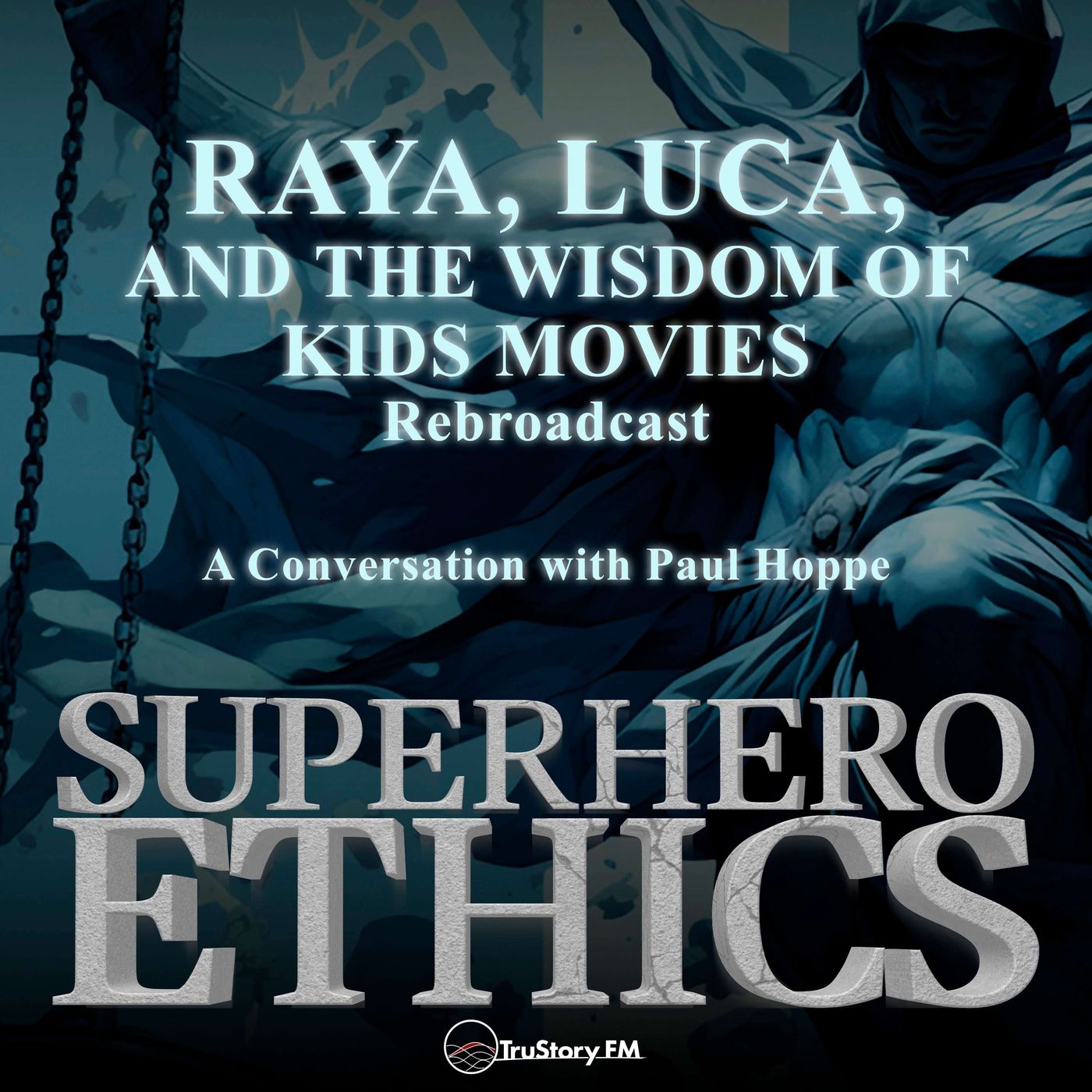
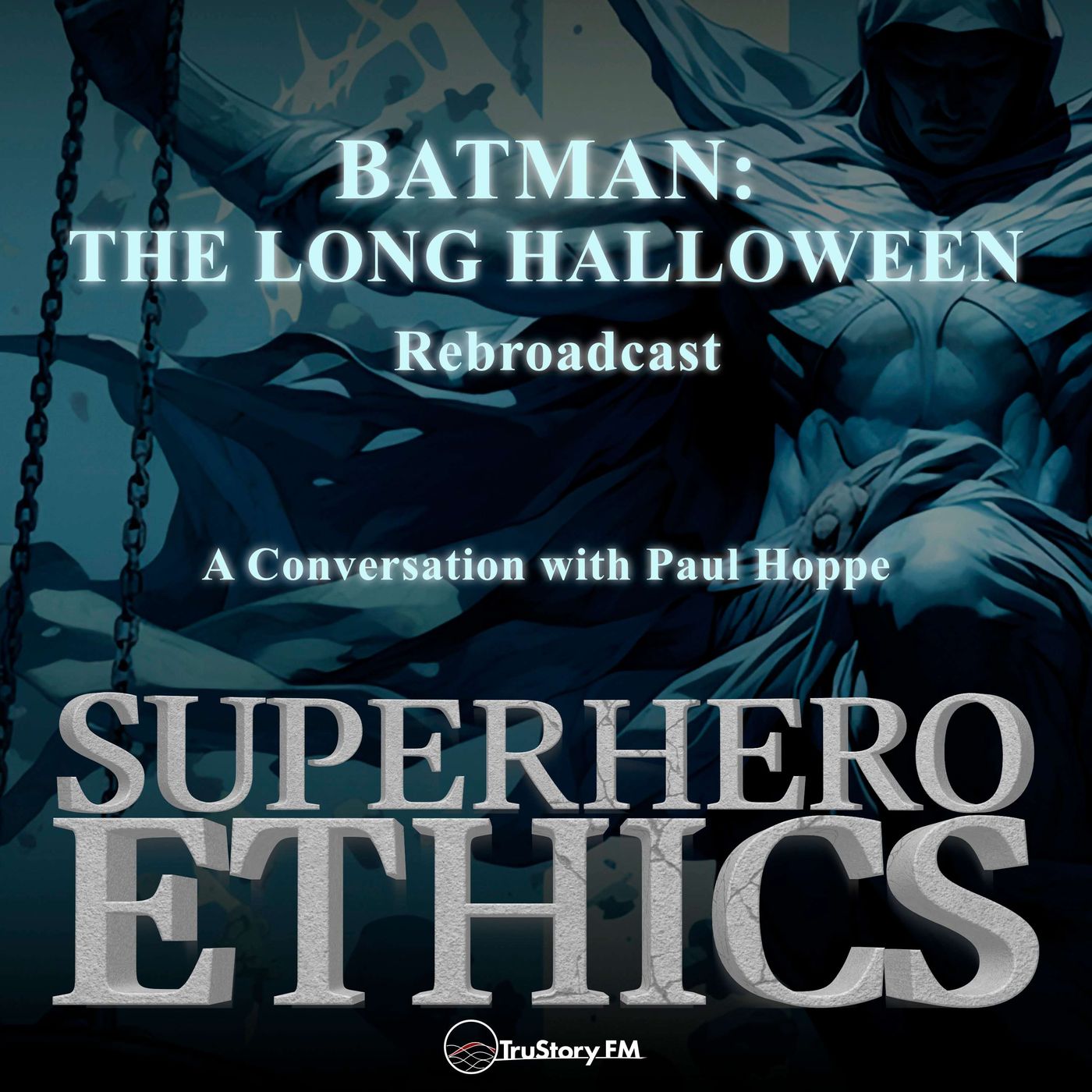
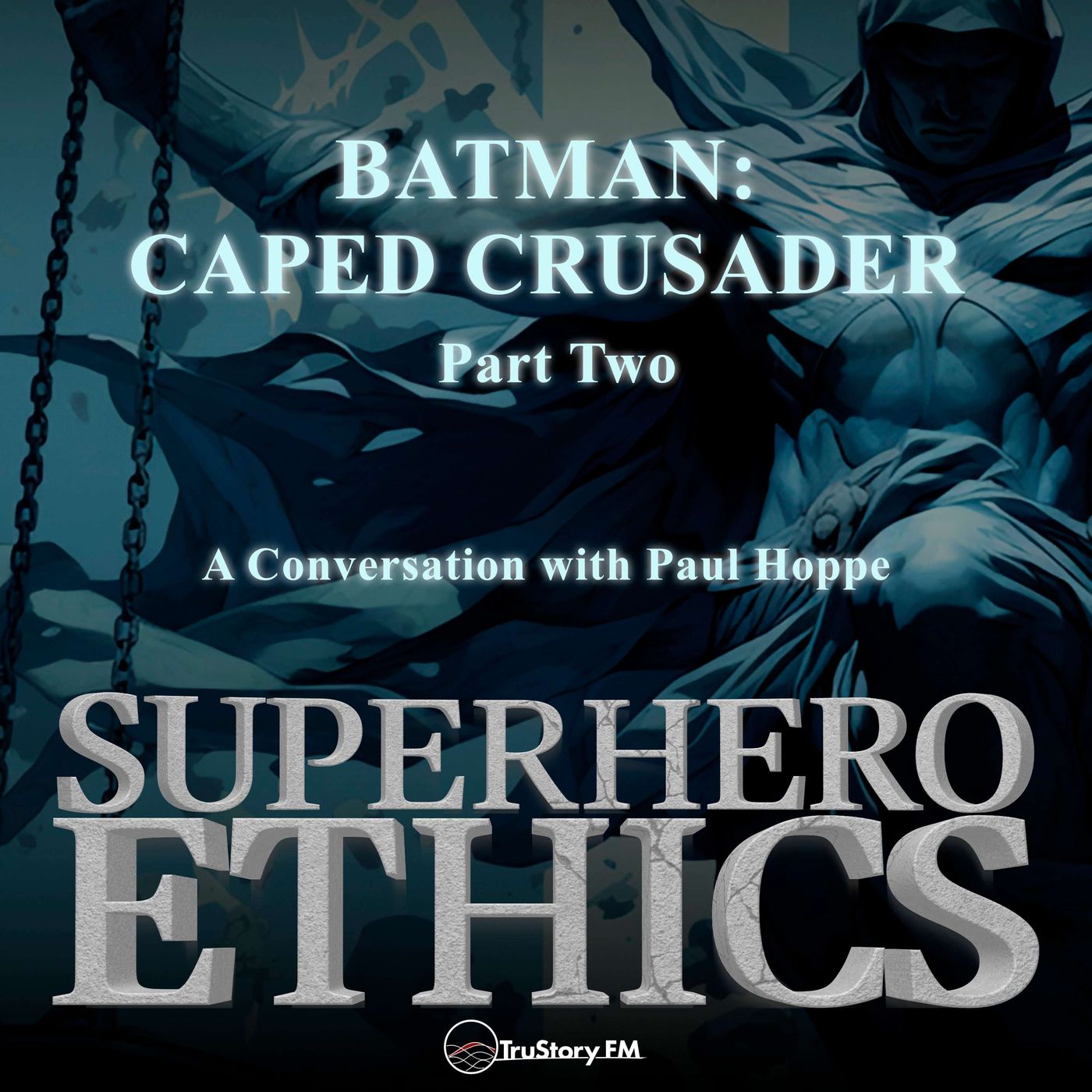
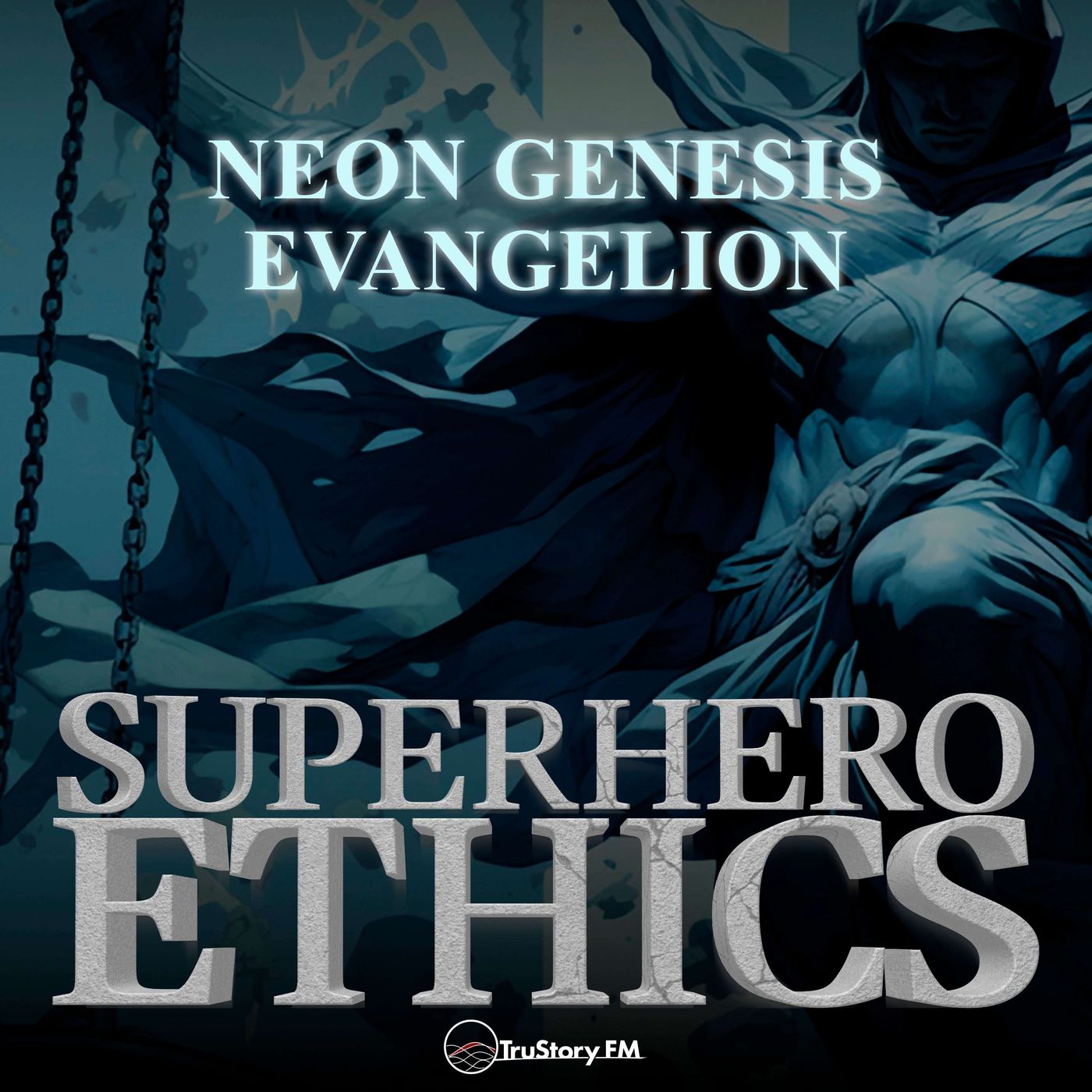
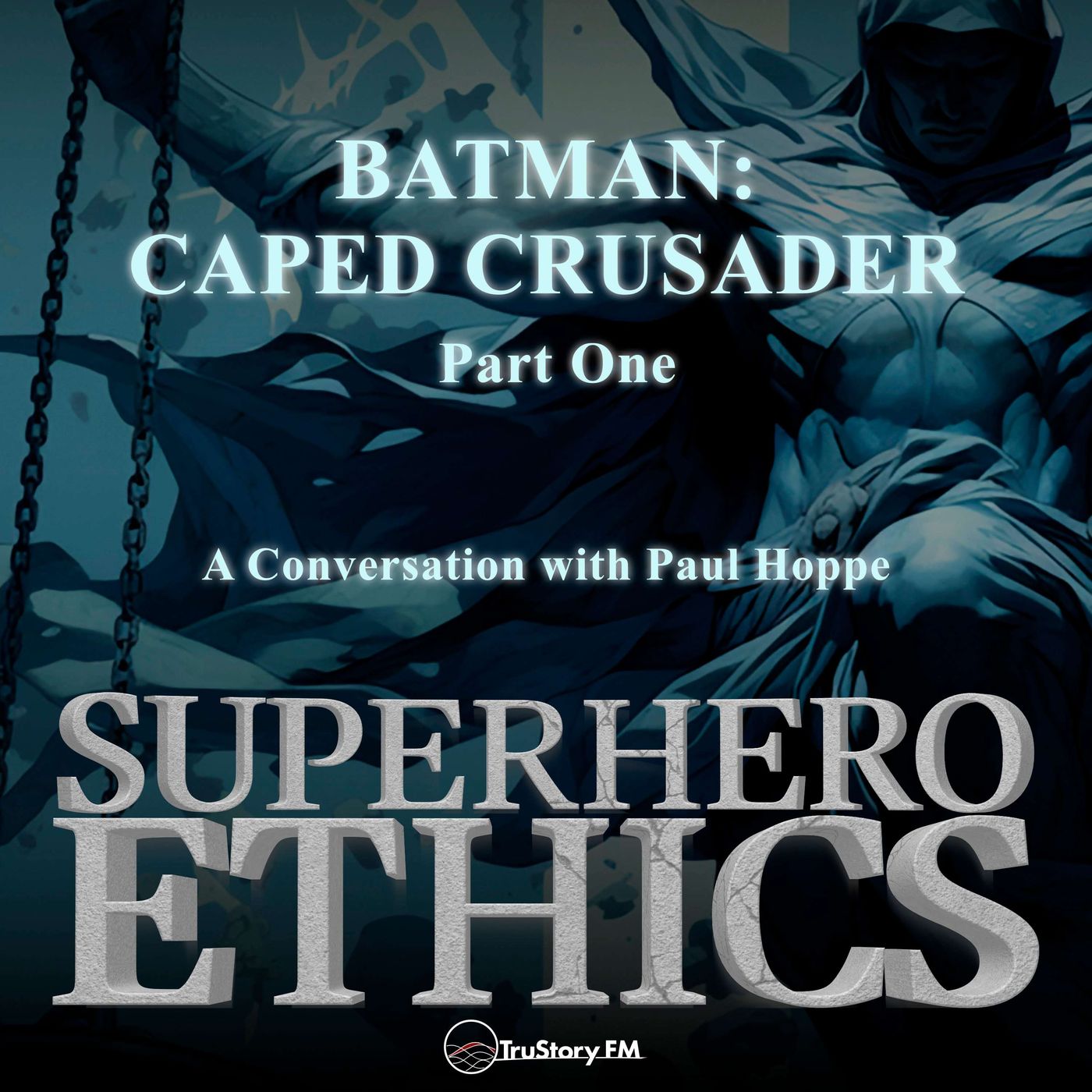
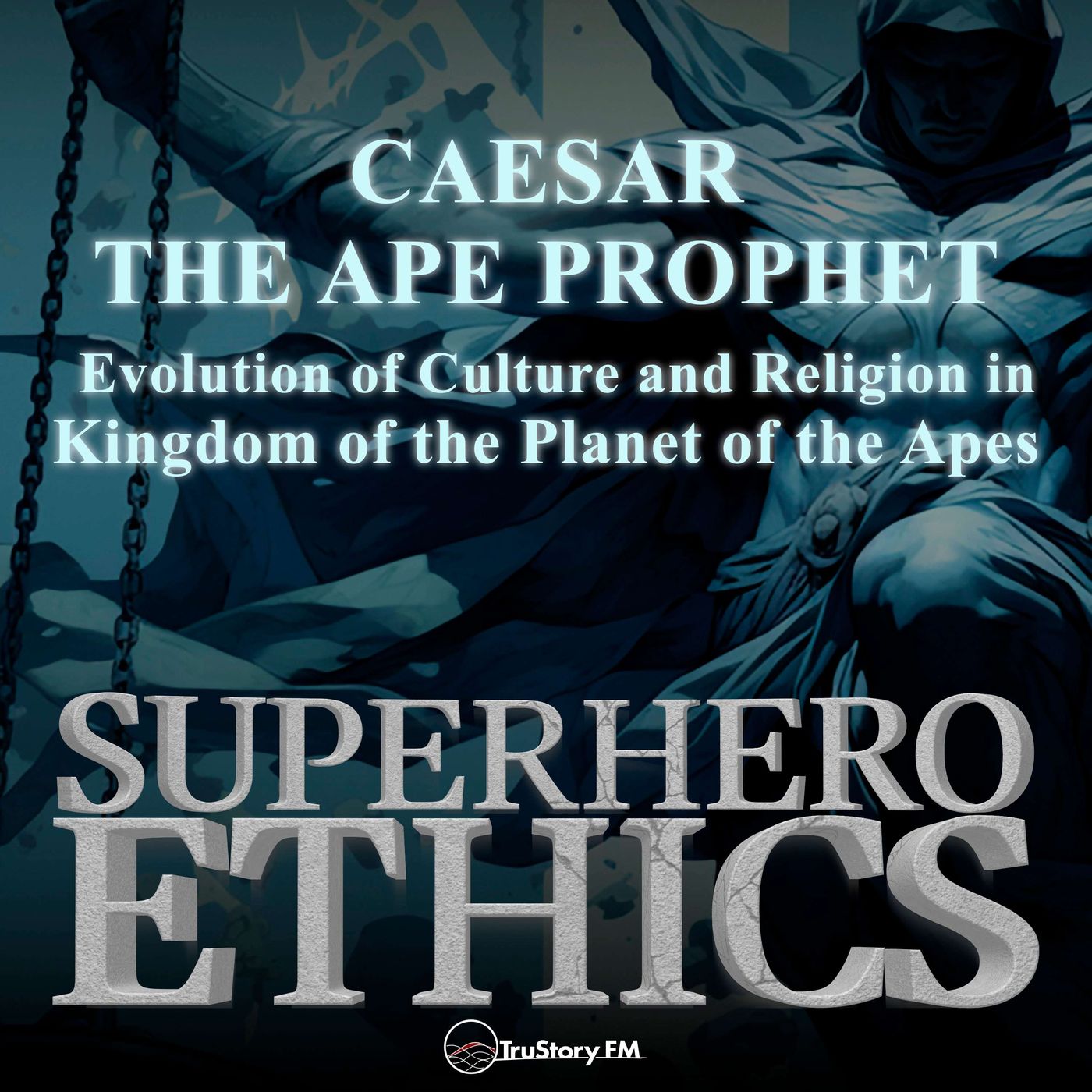
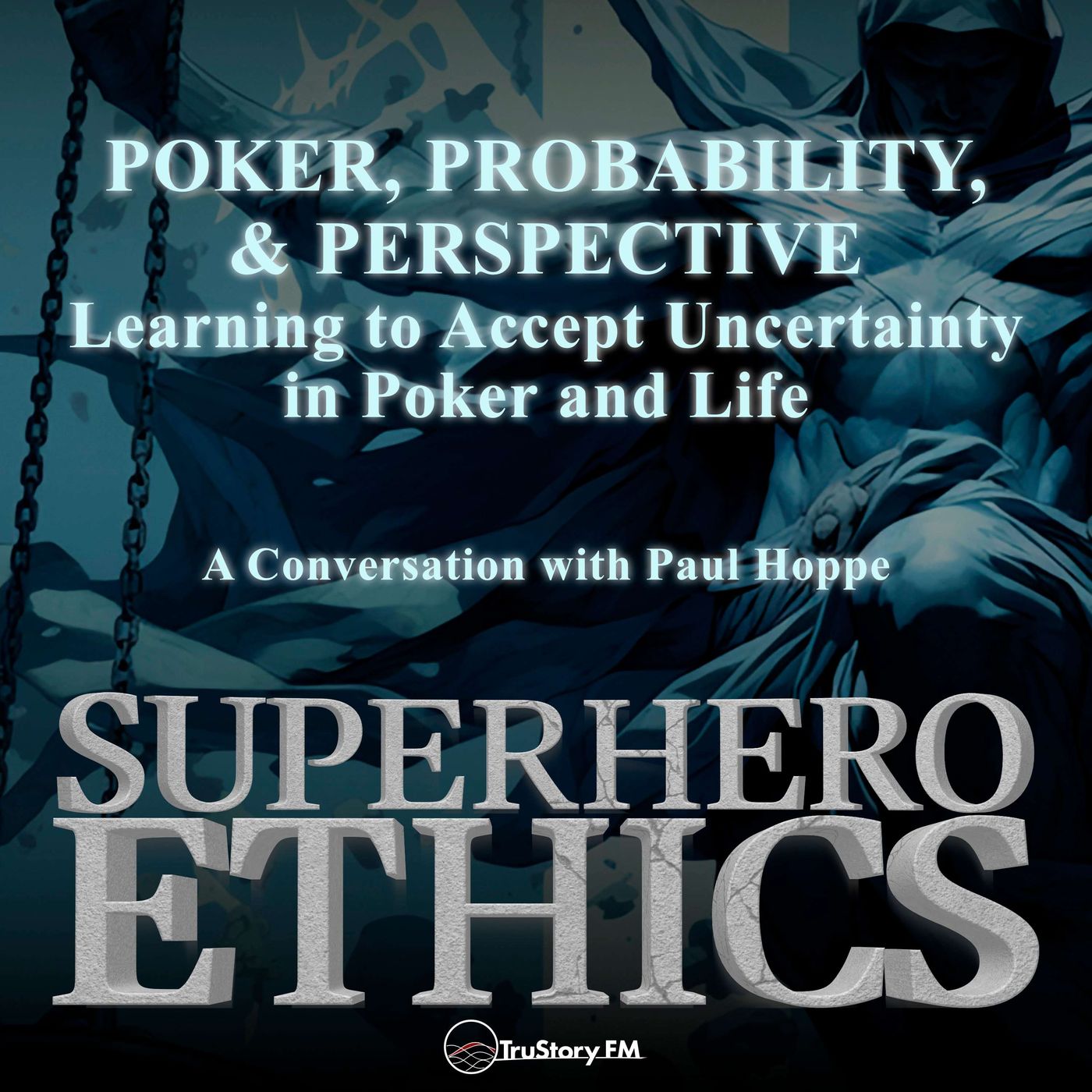
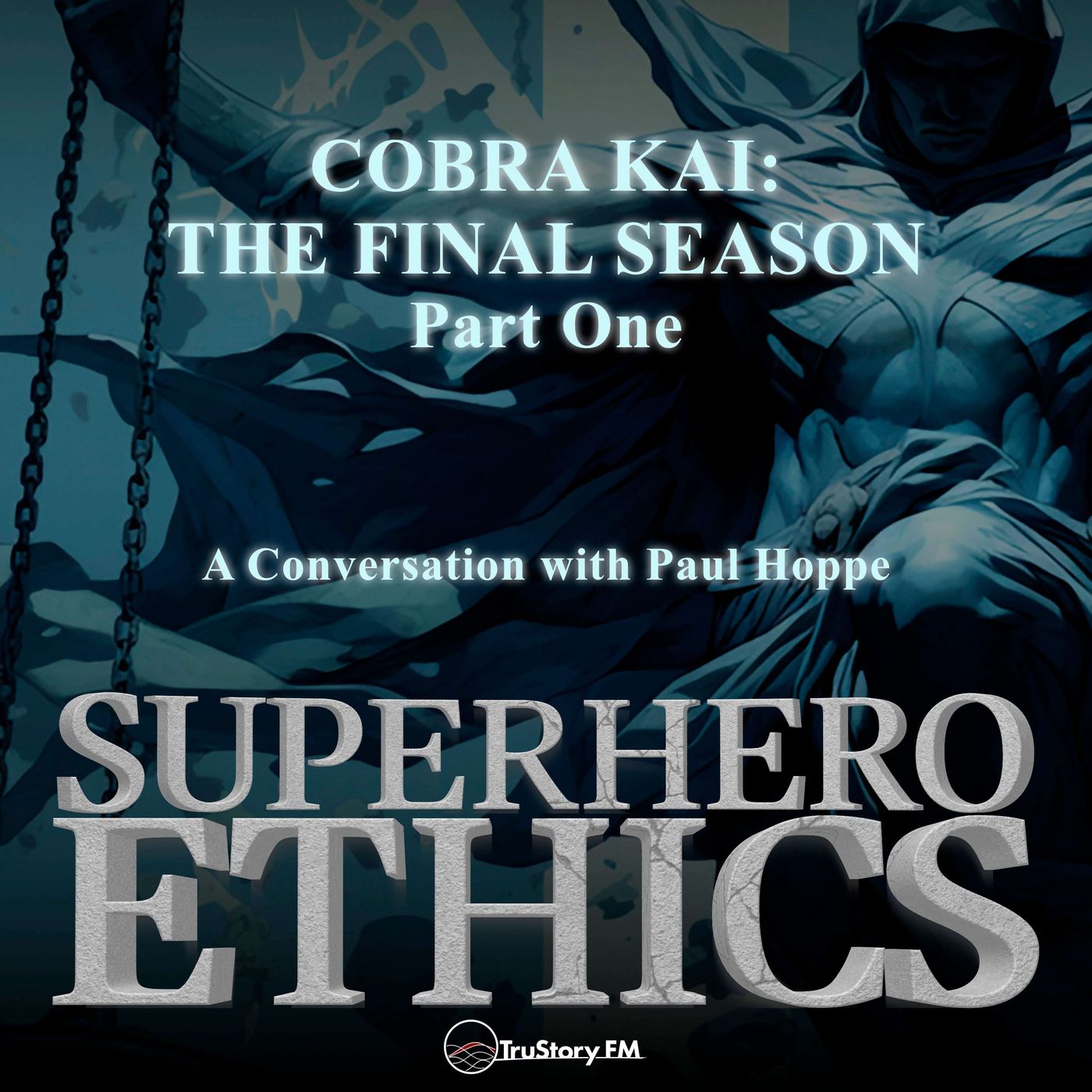
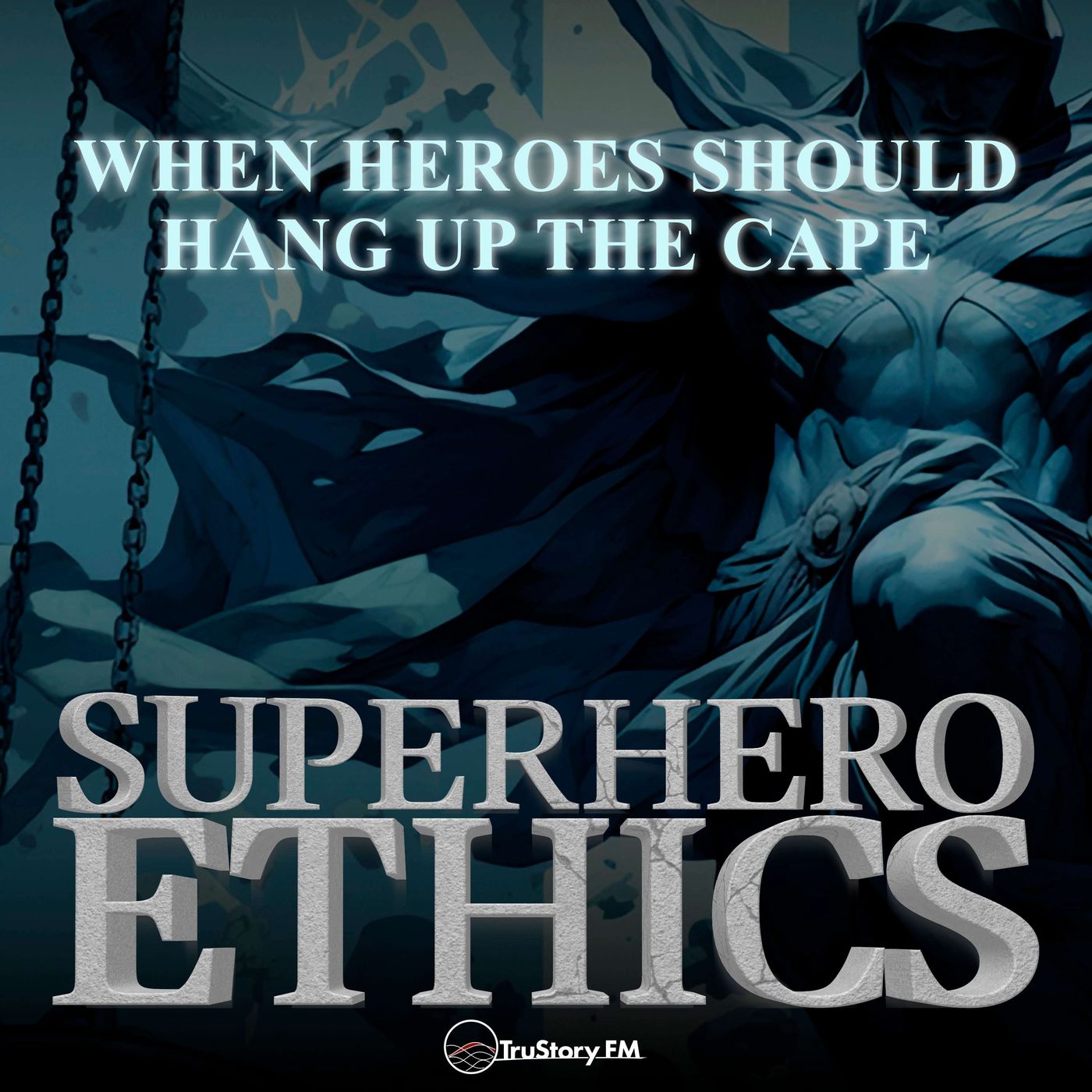
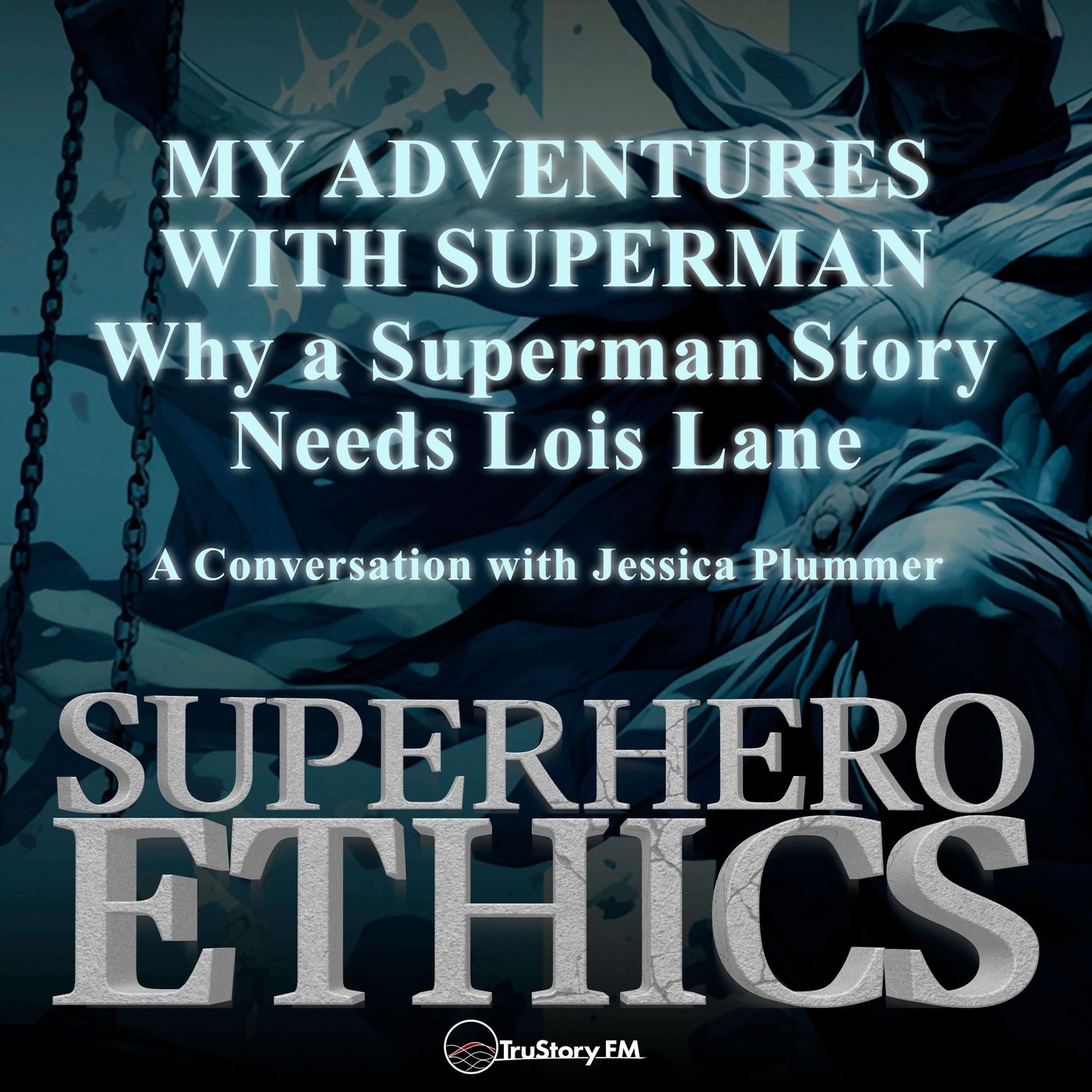
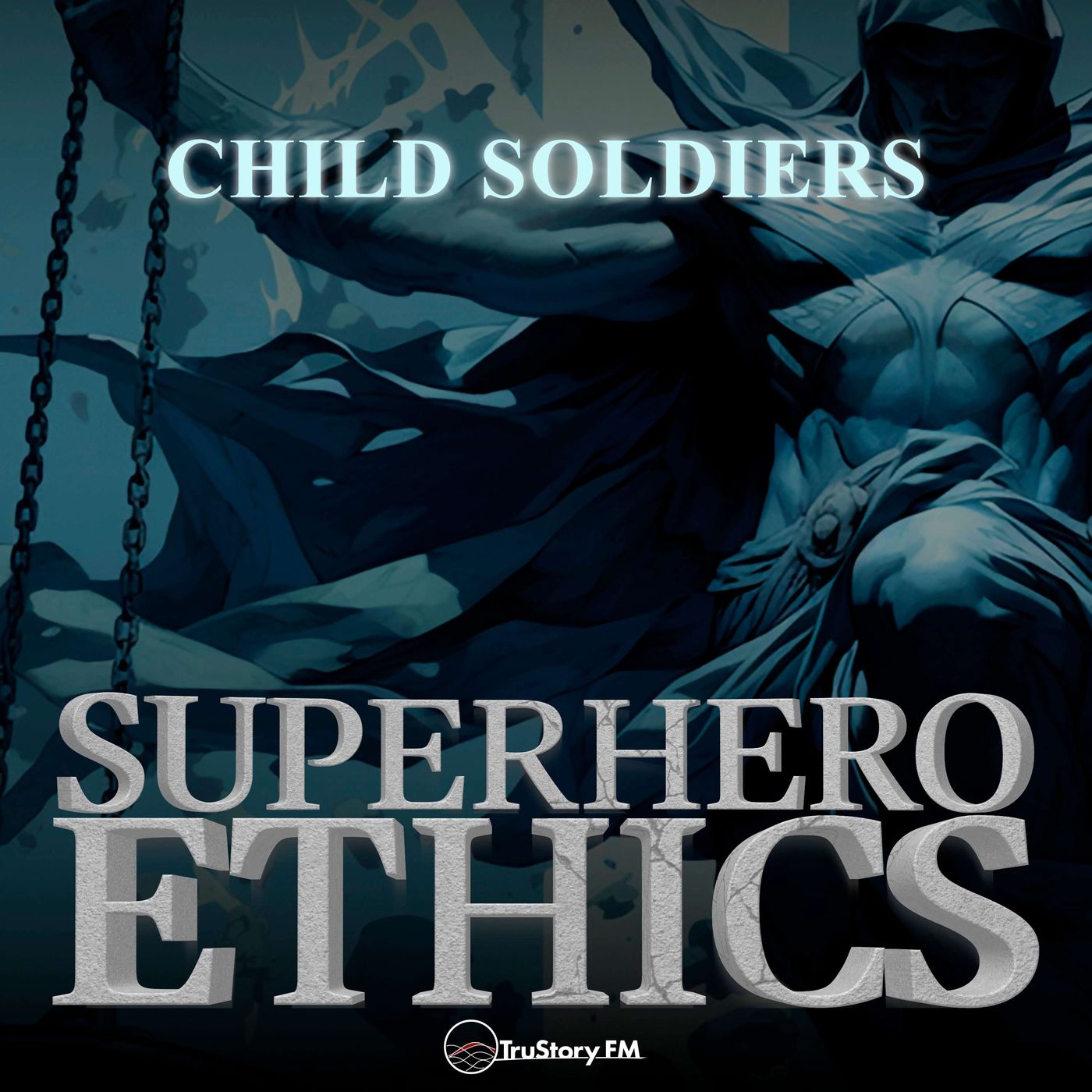
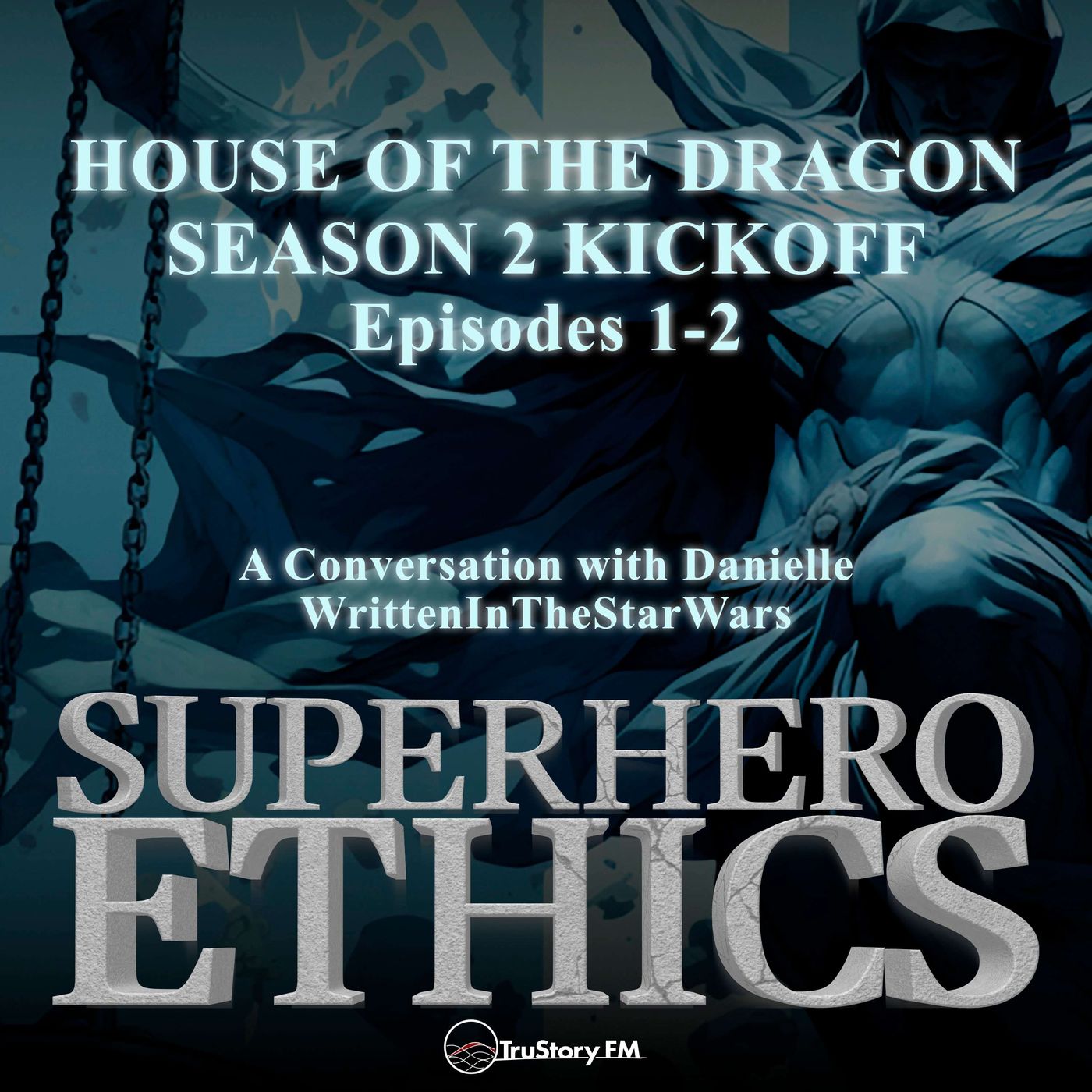
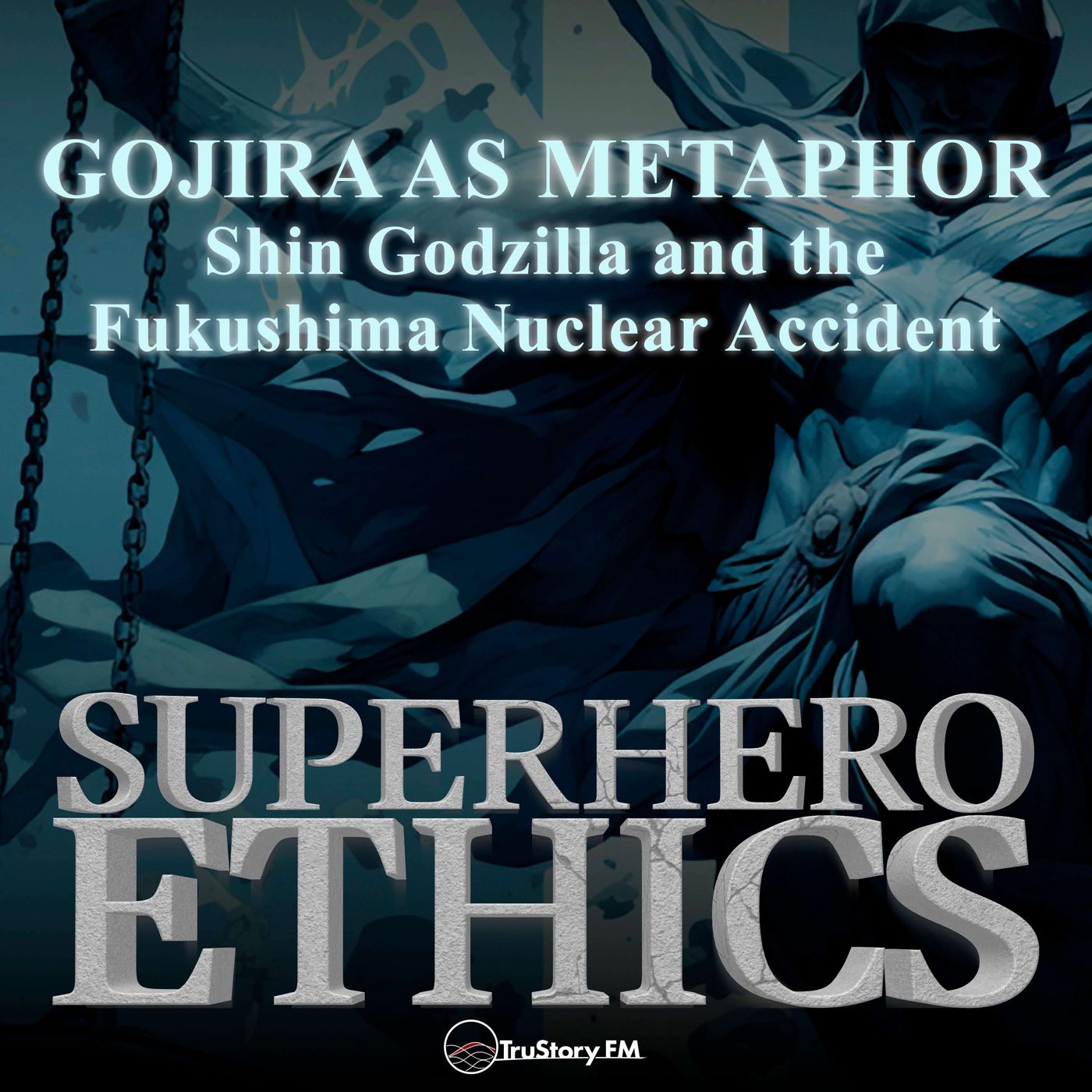
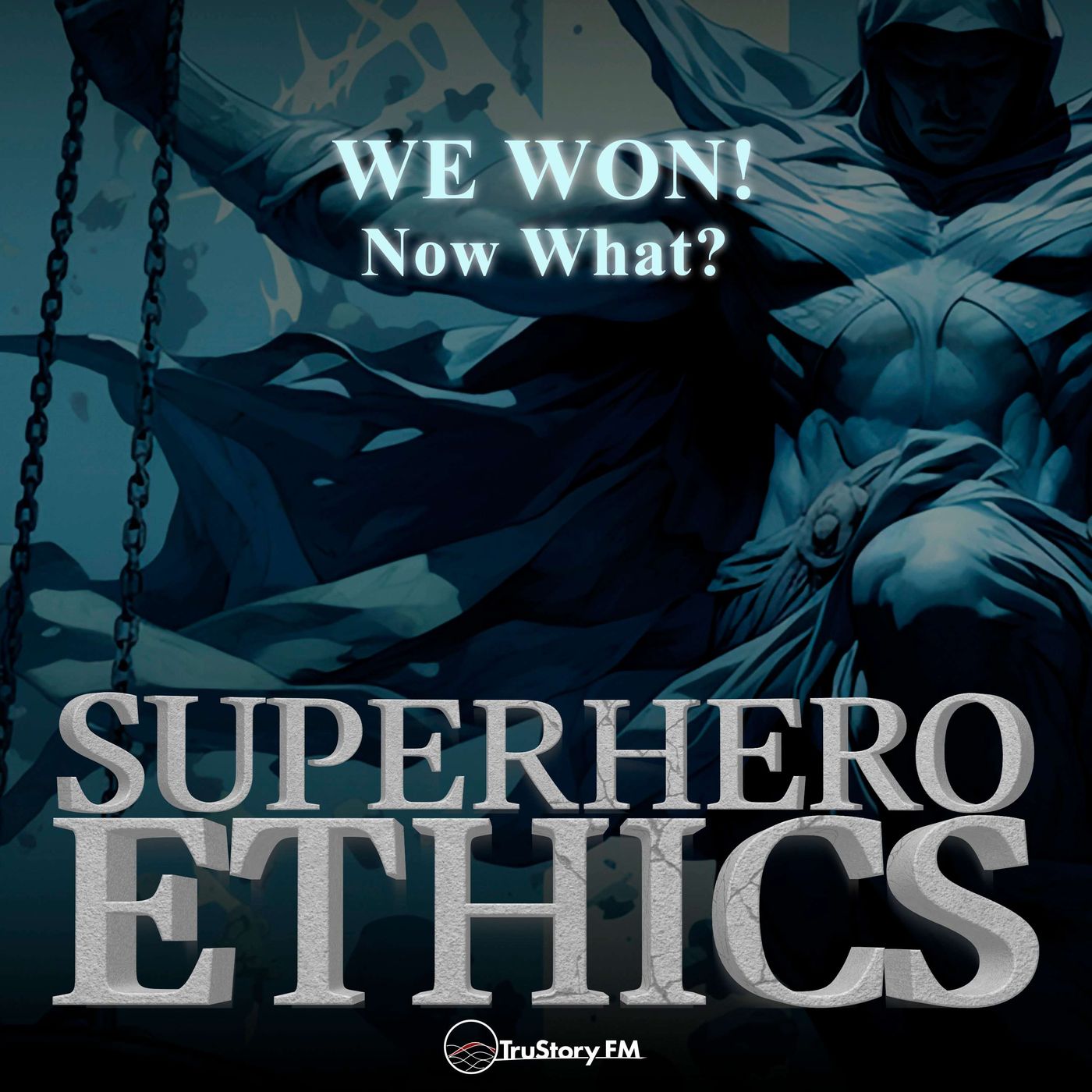
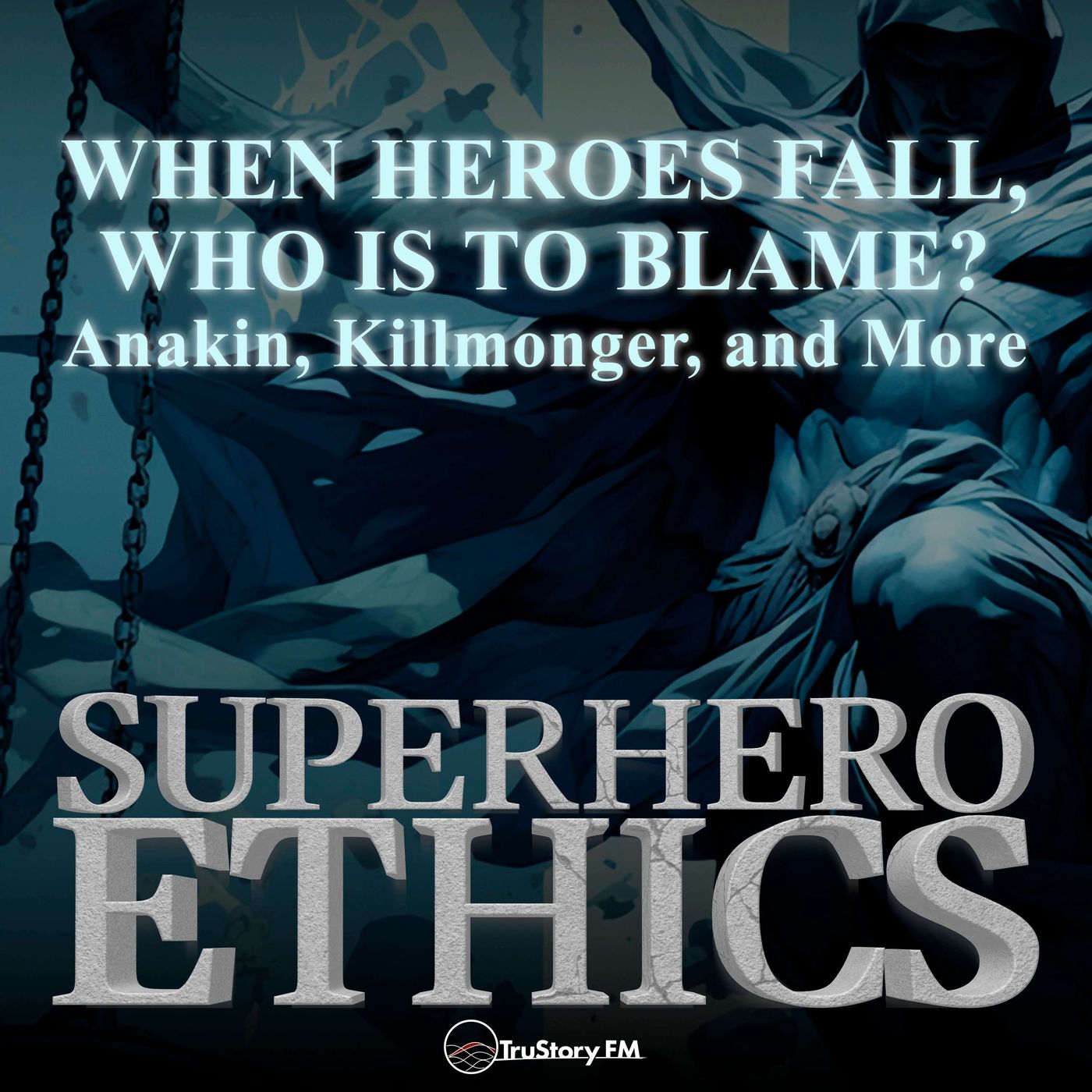
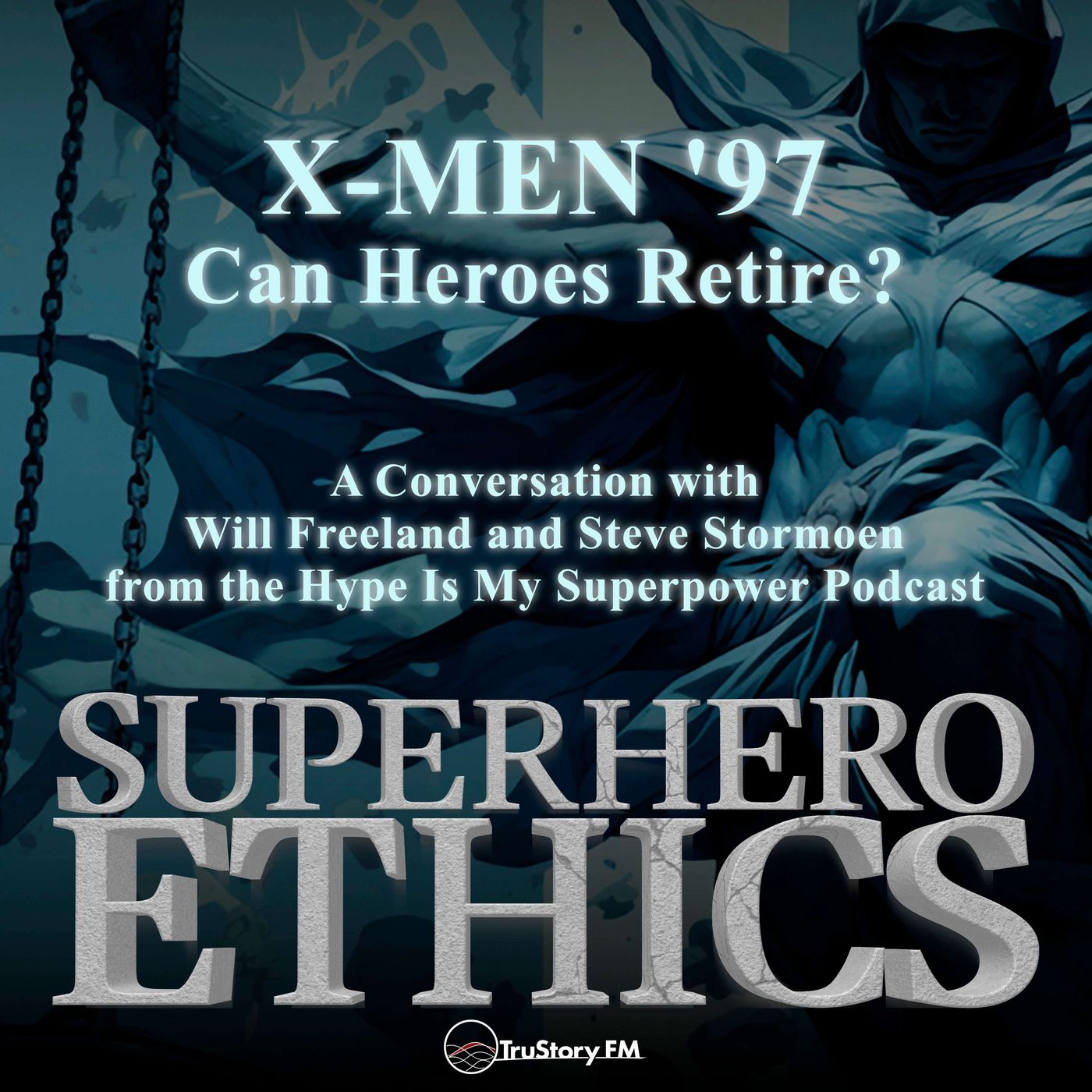
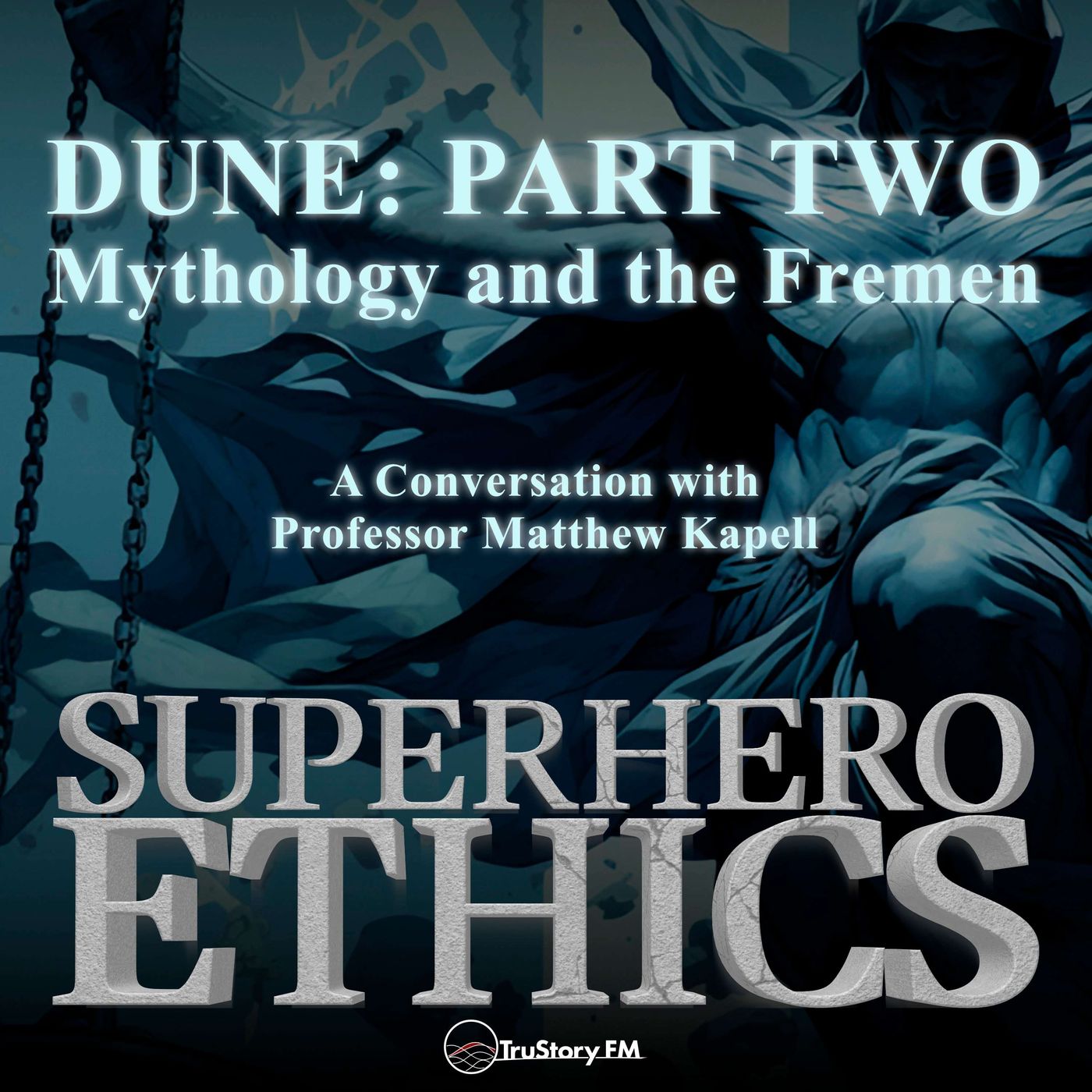
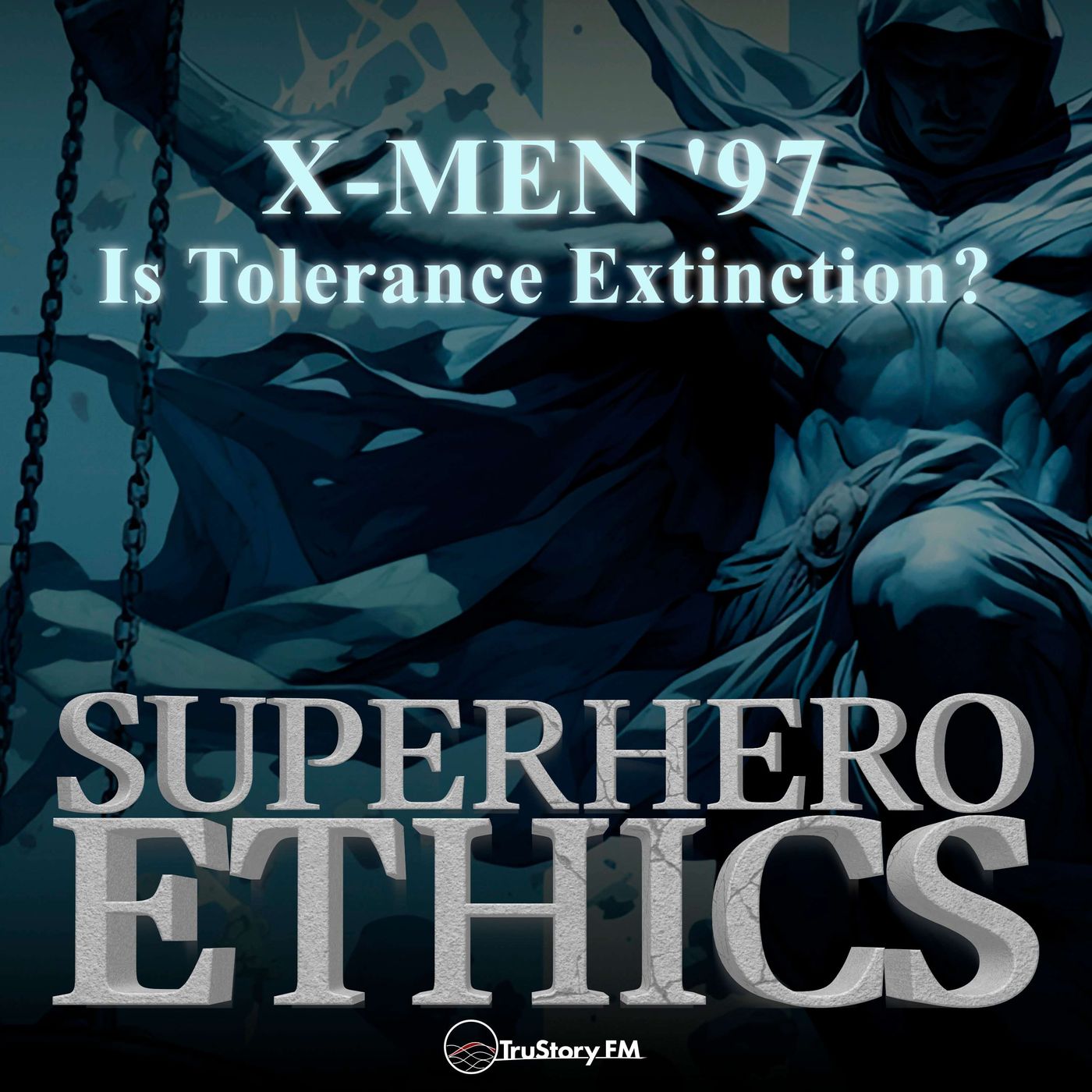
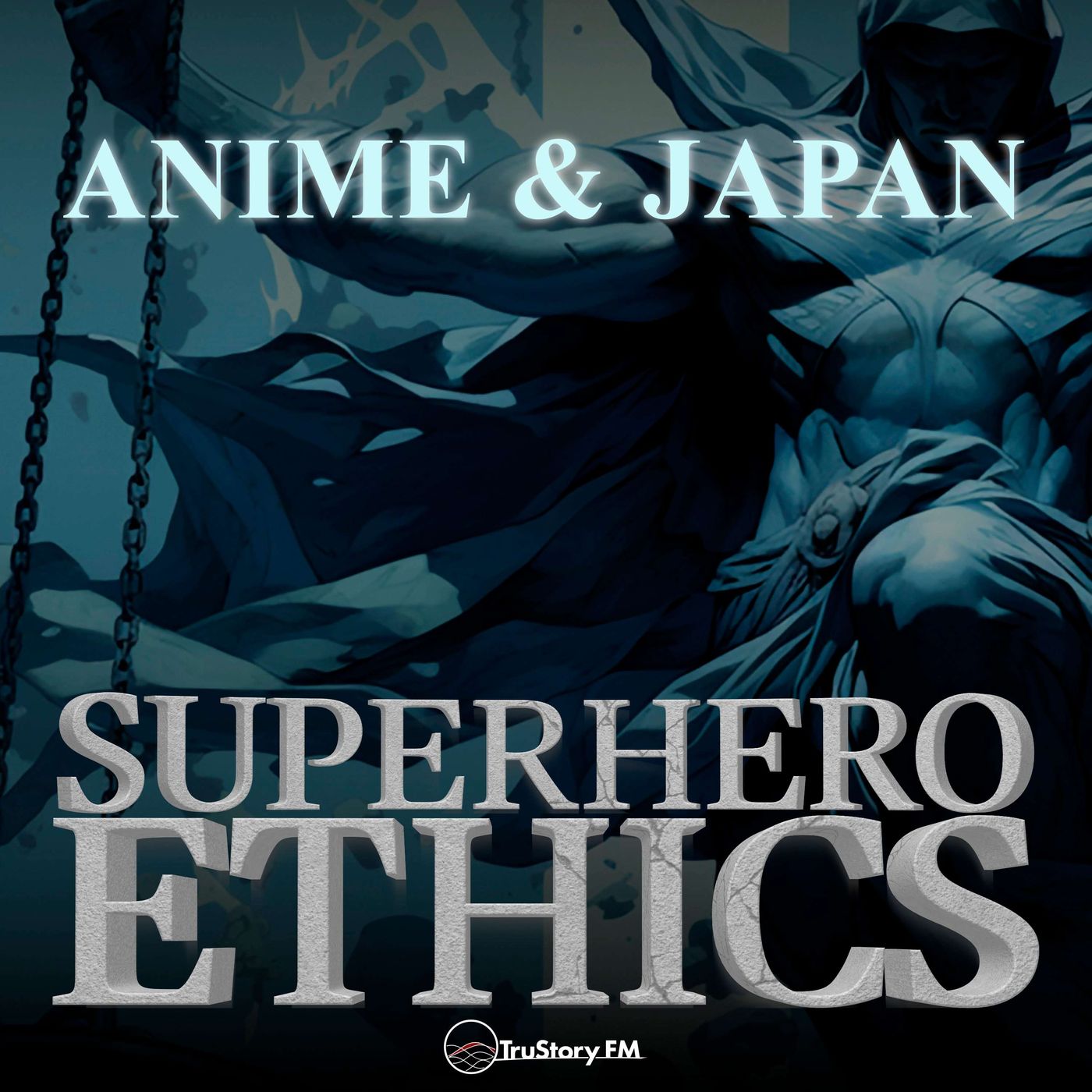
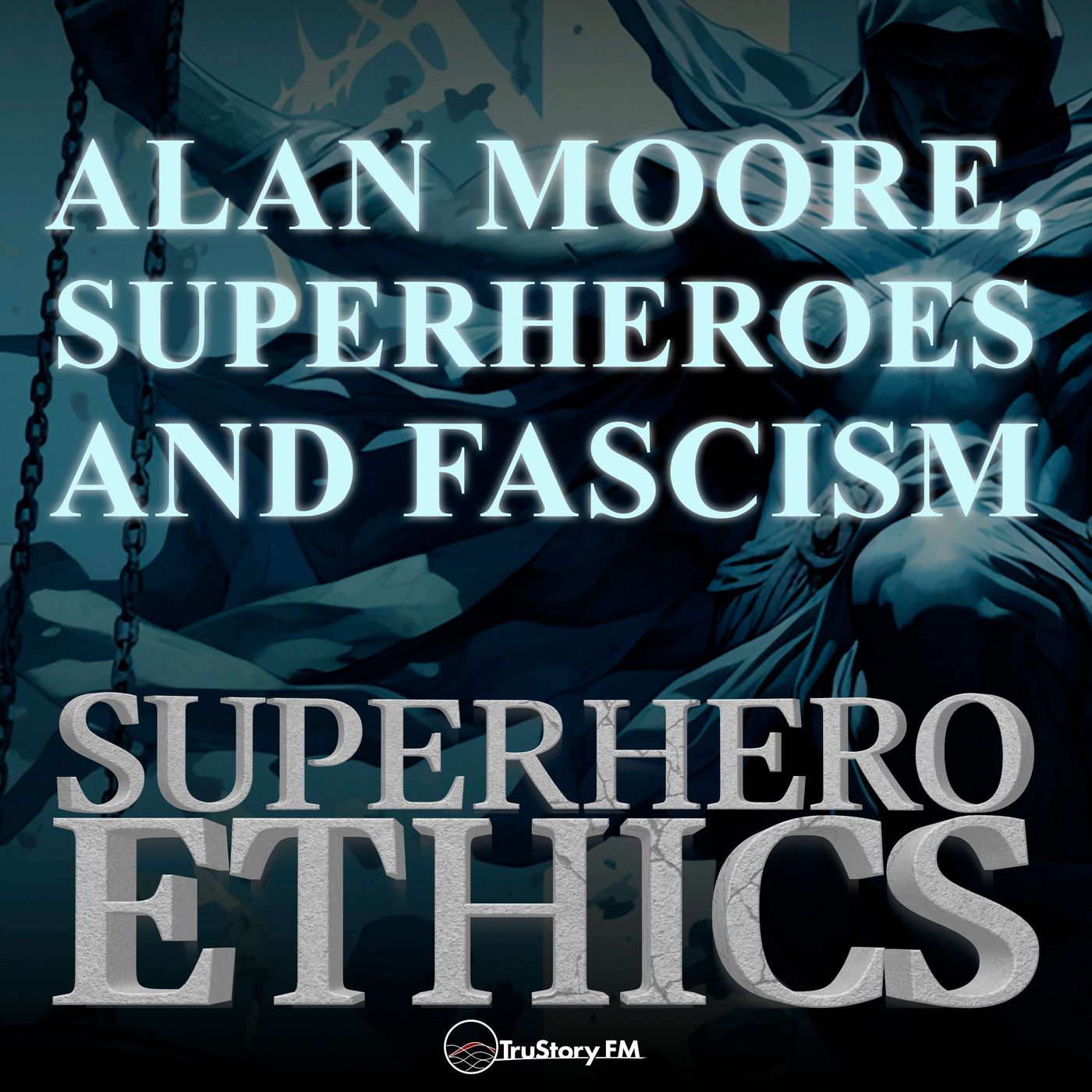


I thought this would be fertile ground for discussion. Then the first comment of the first episode I listened to (Cobra Kai s.3) consists of the hosts complaining about the race of the actors. Gave it another chance (WW84), didn't get any better. "Ethical" discussions are very thin, when they exist at all. Do not recommend.